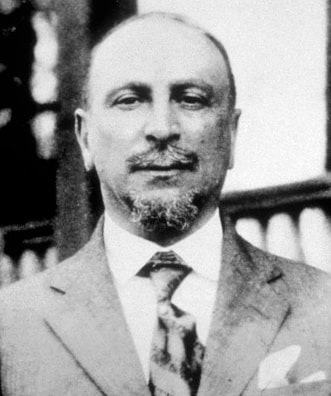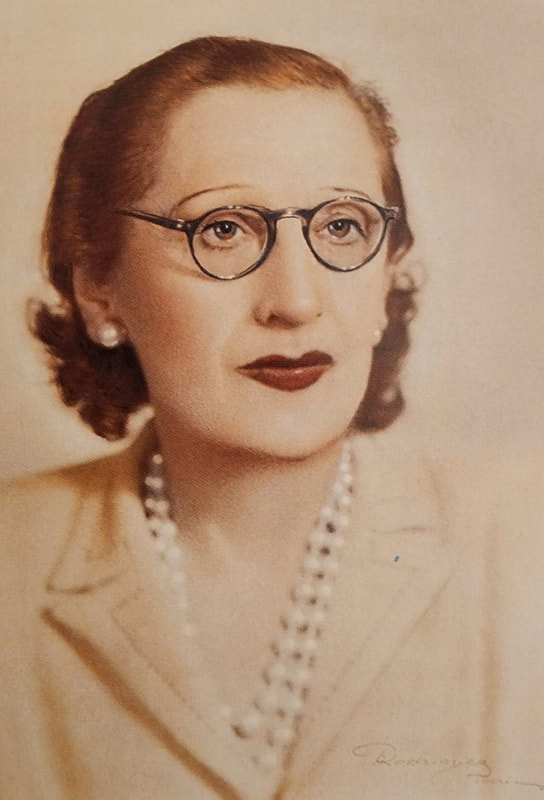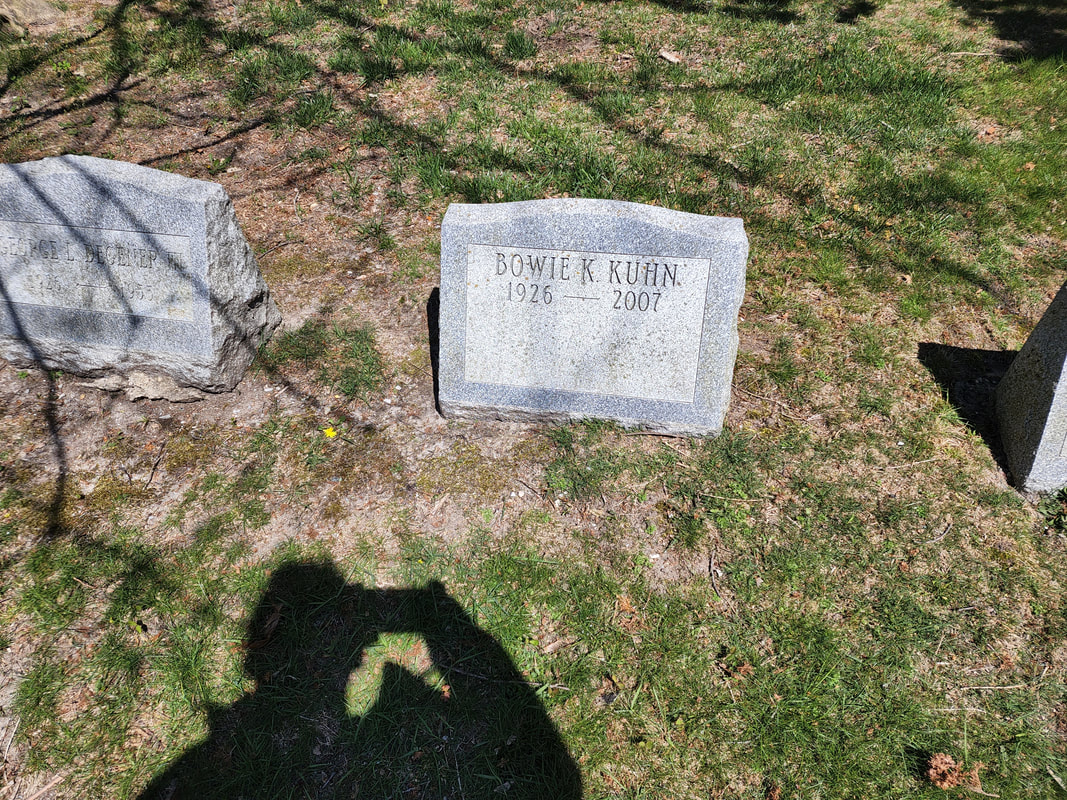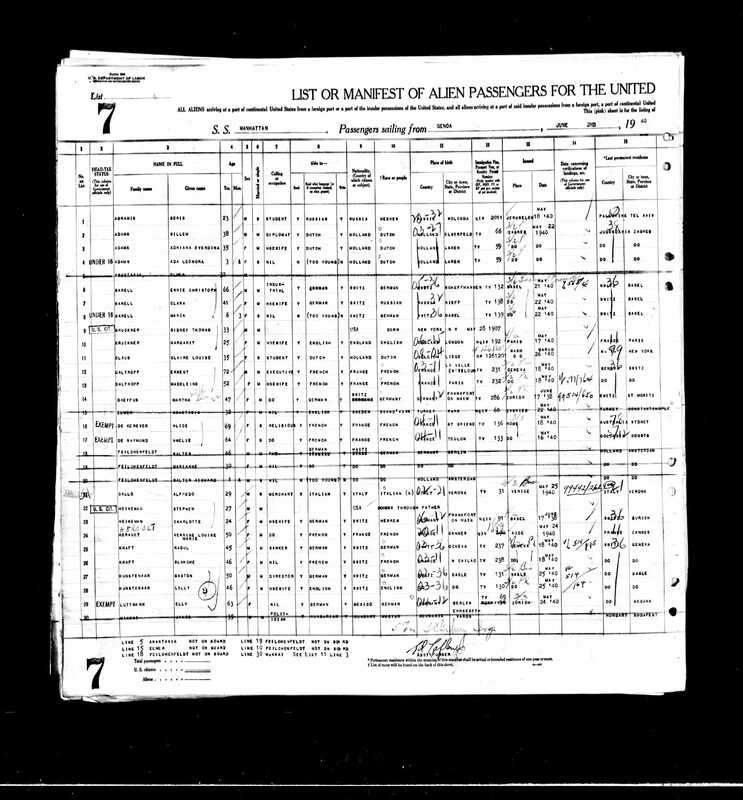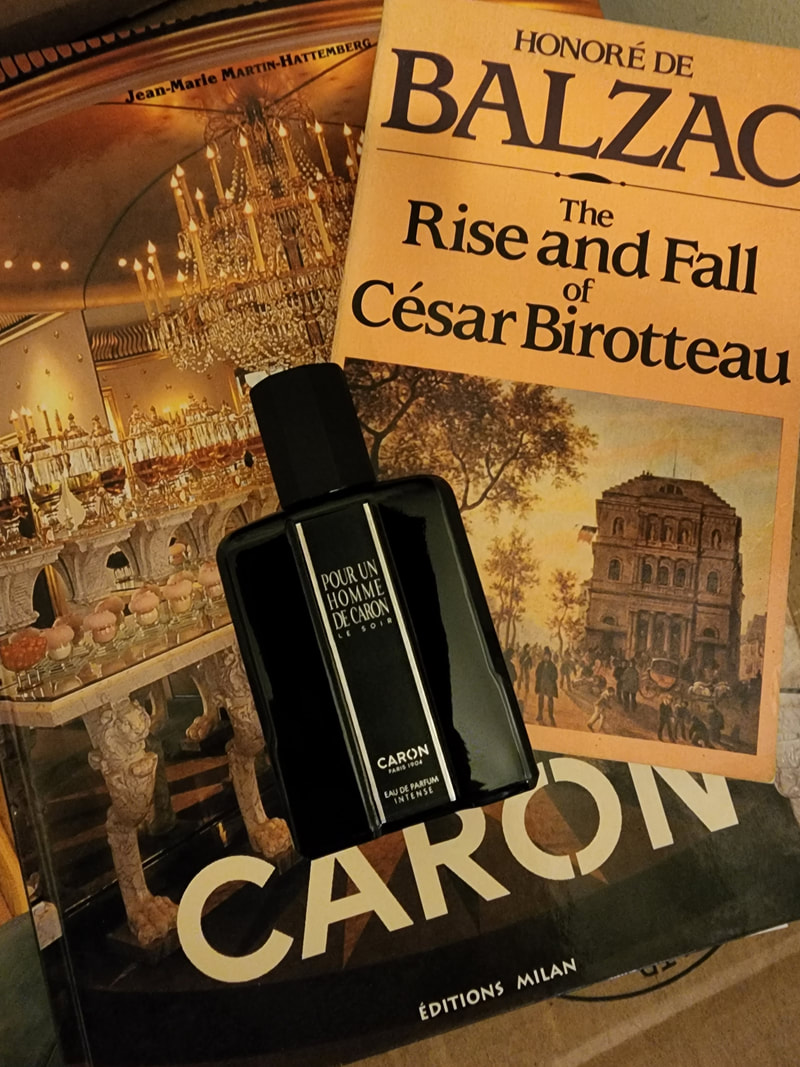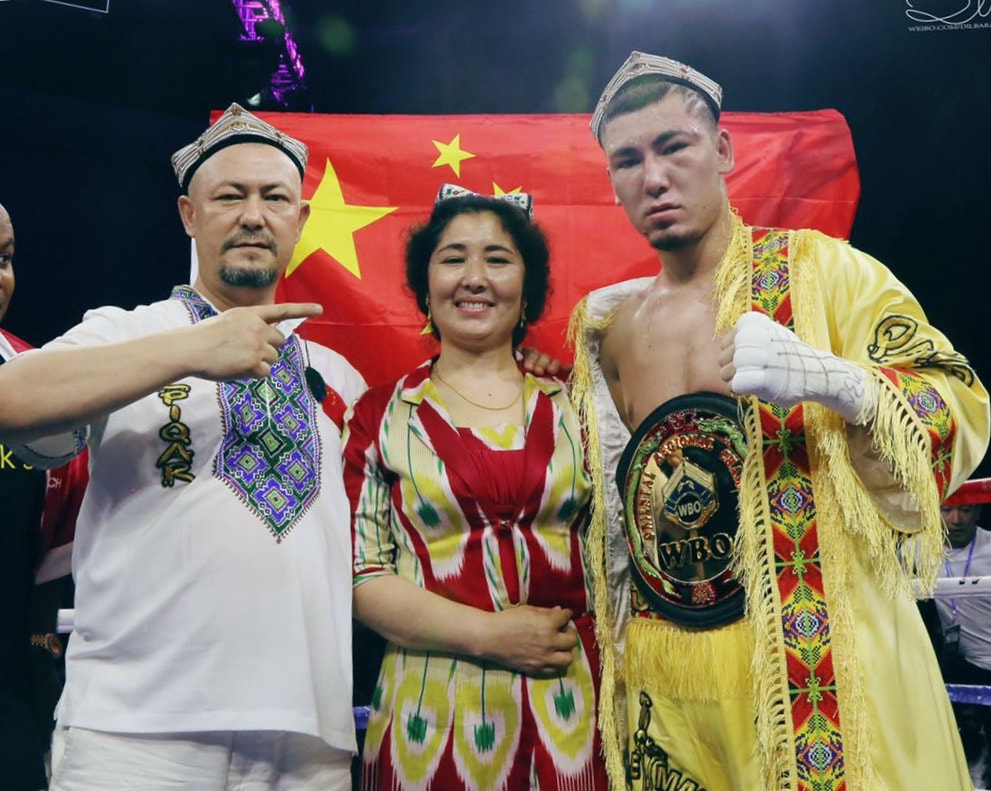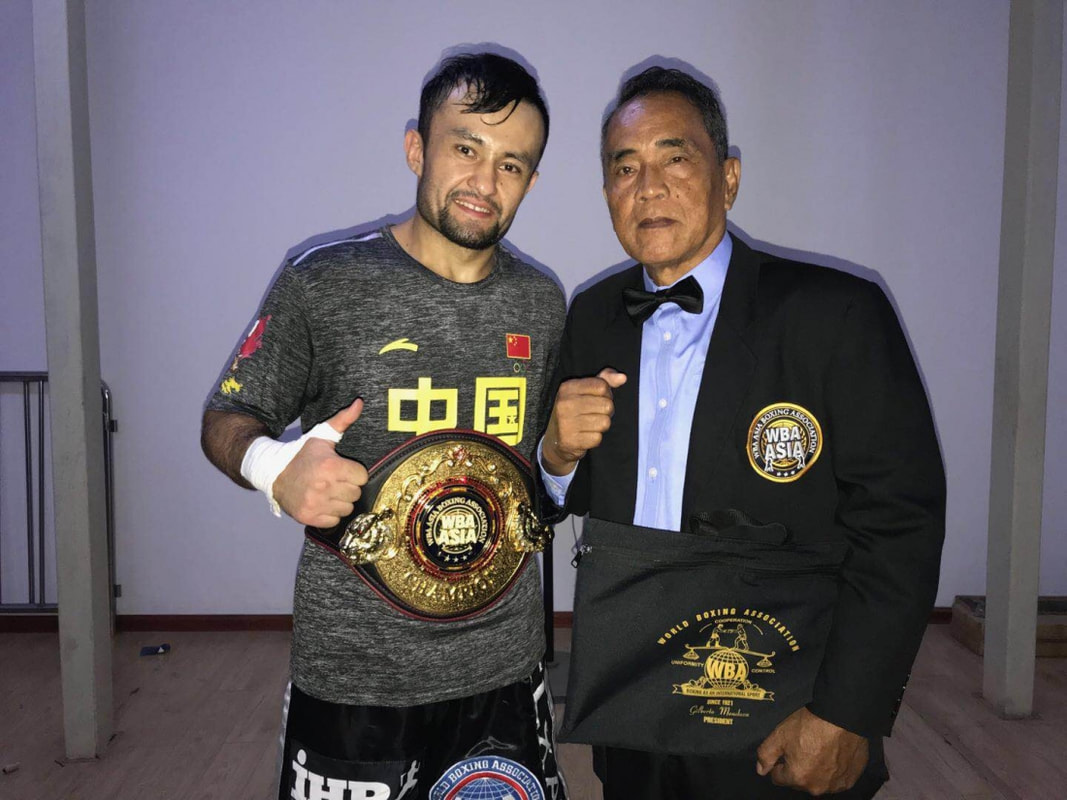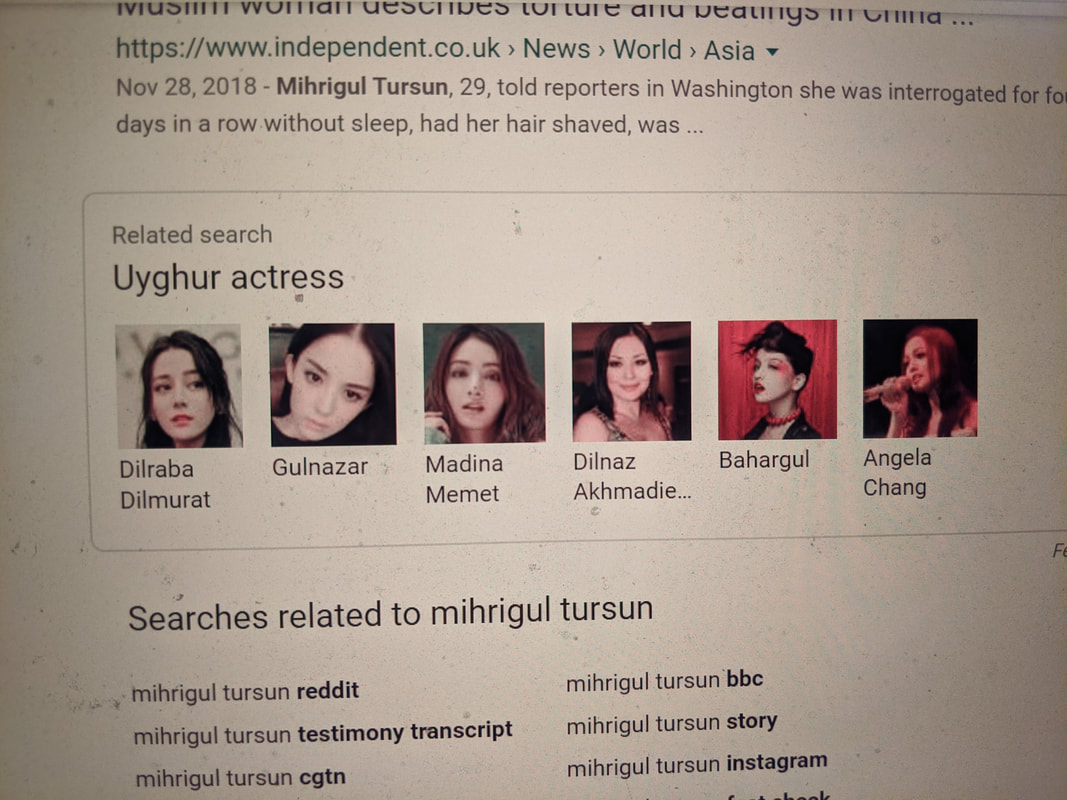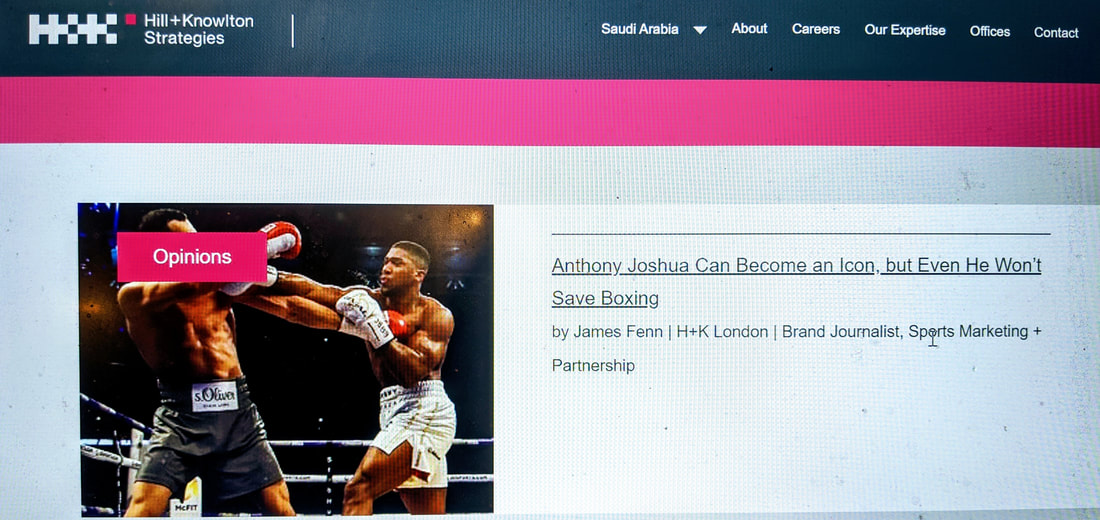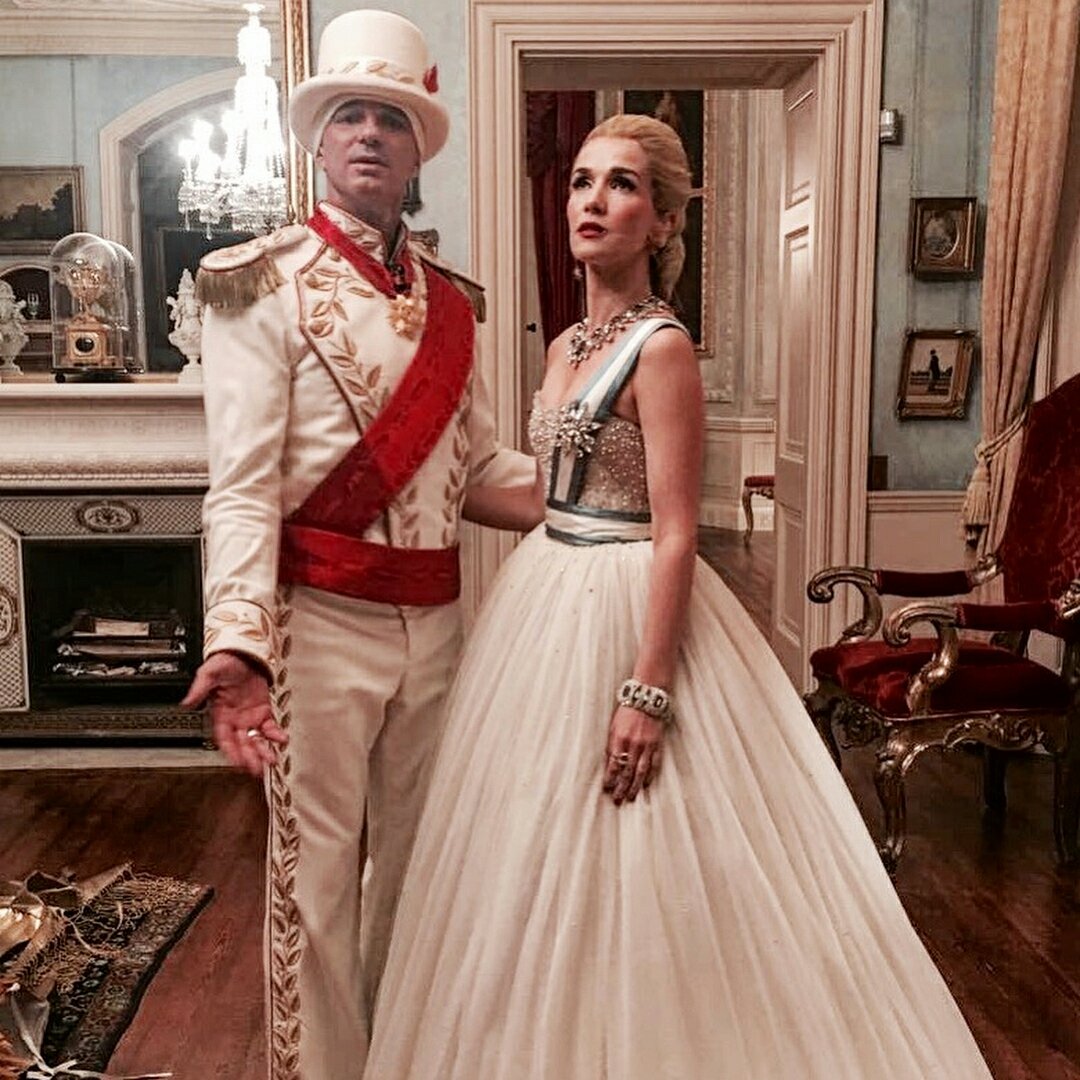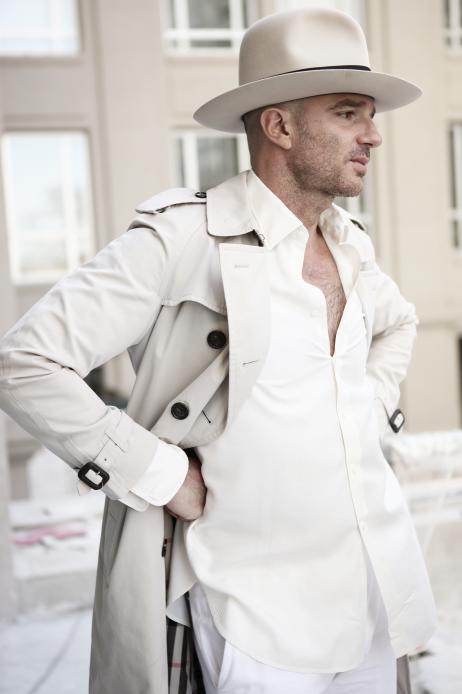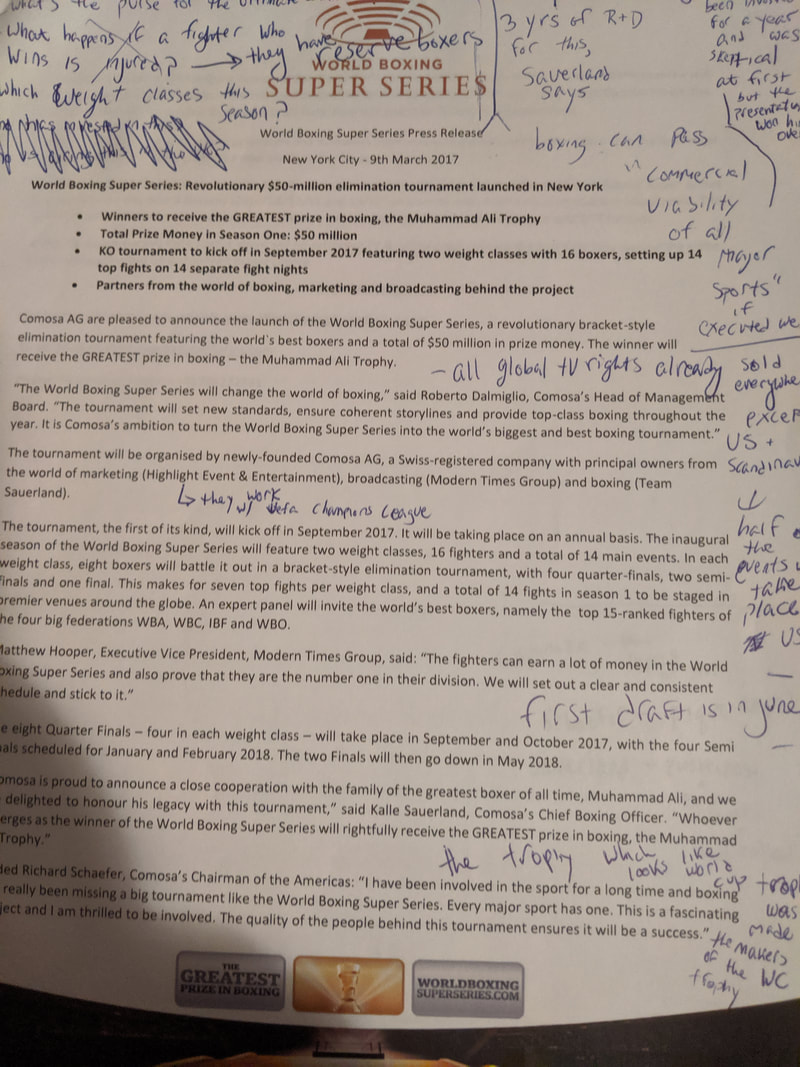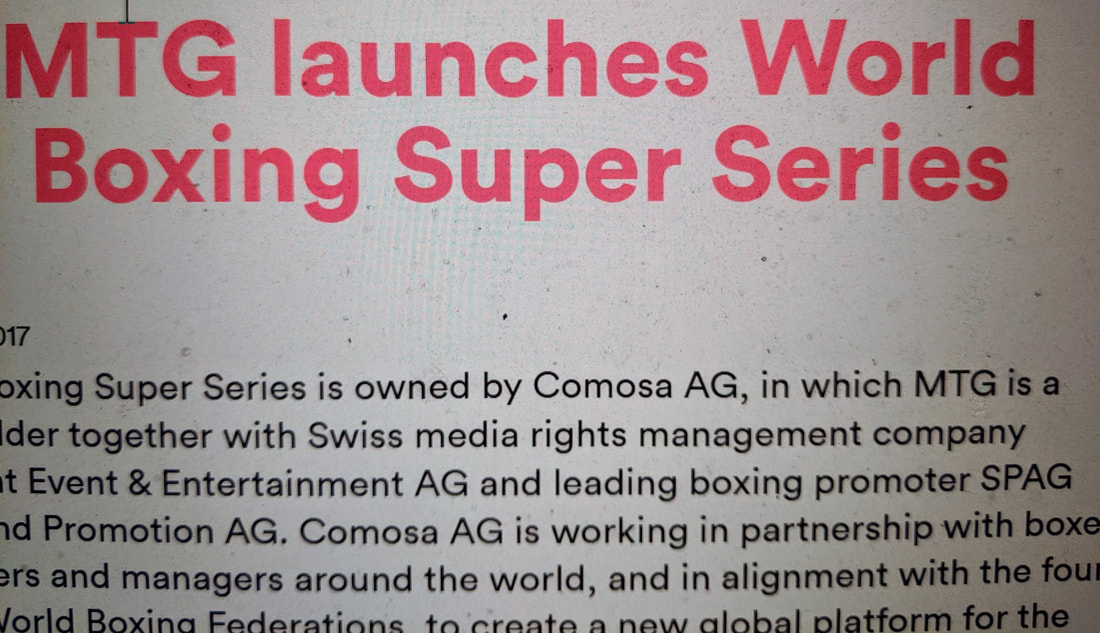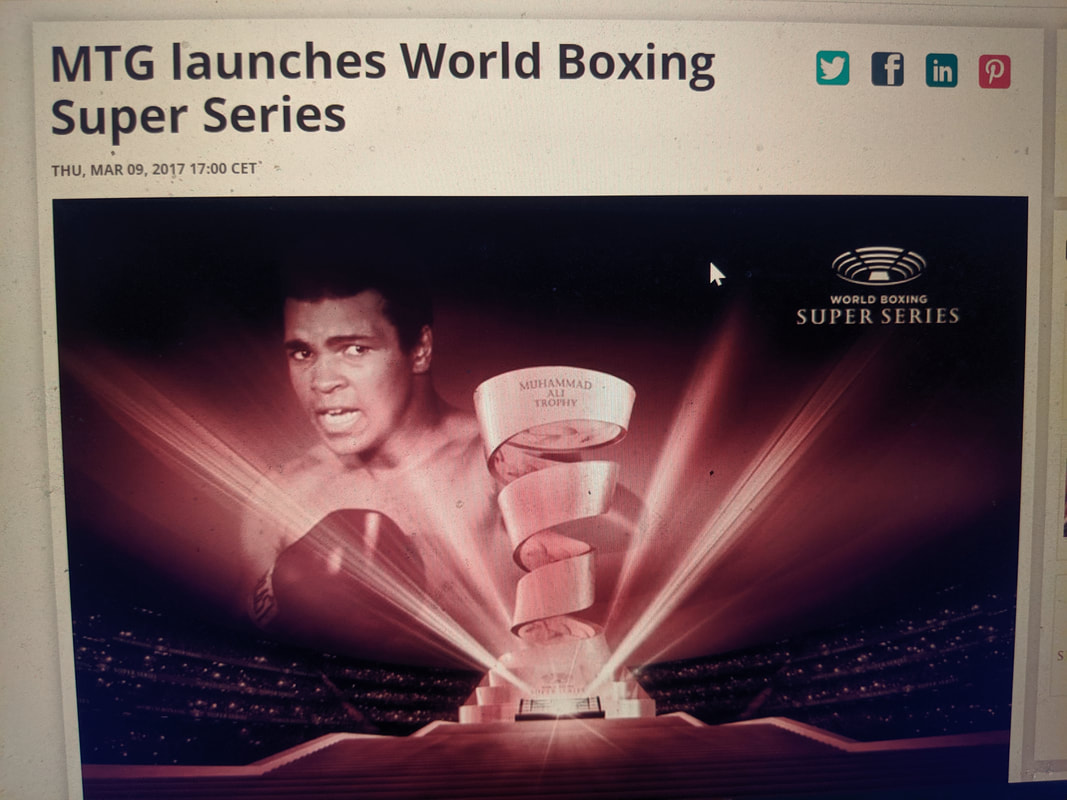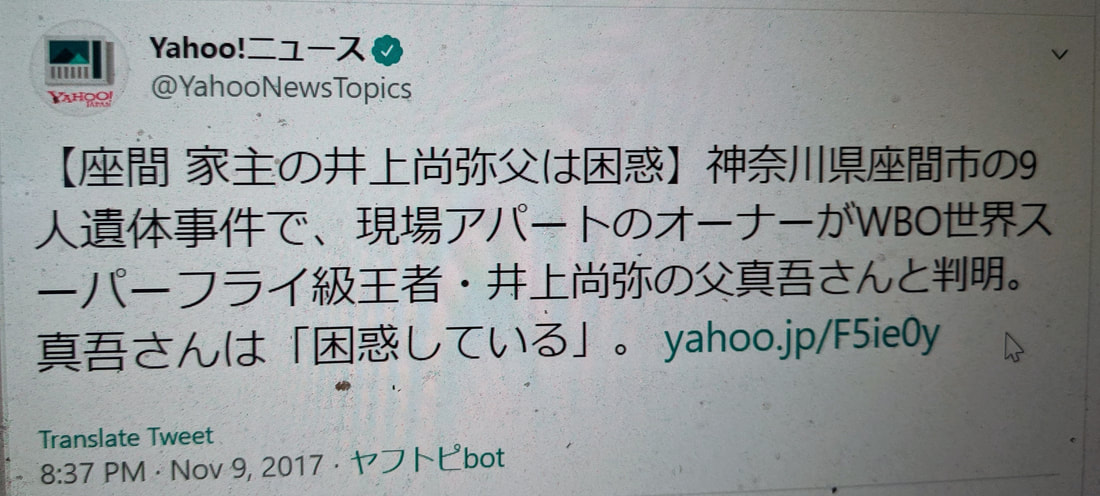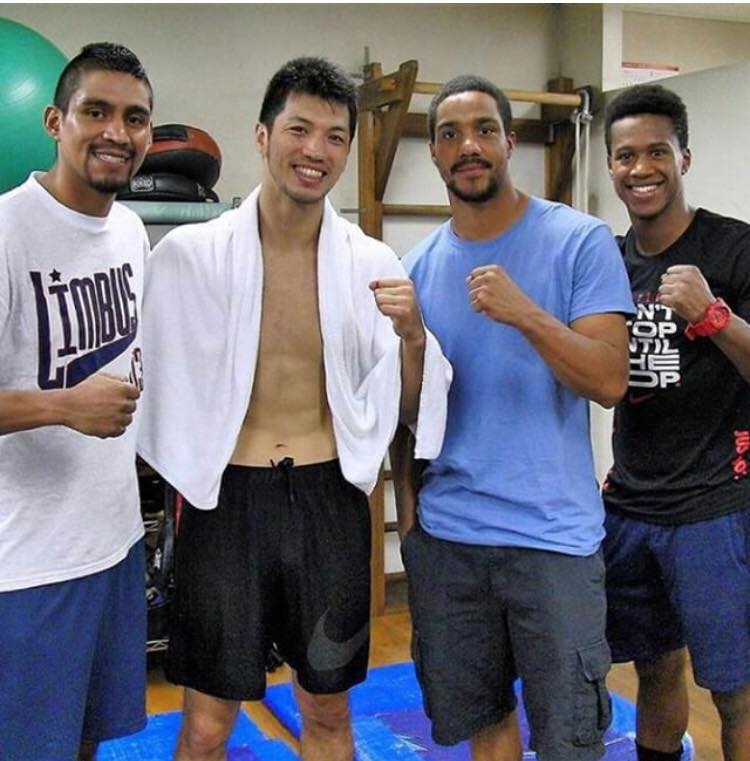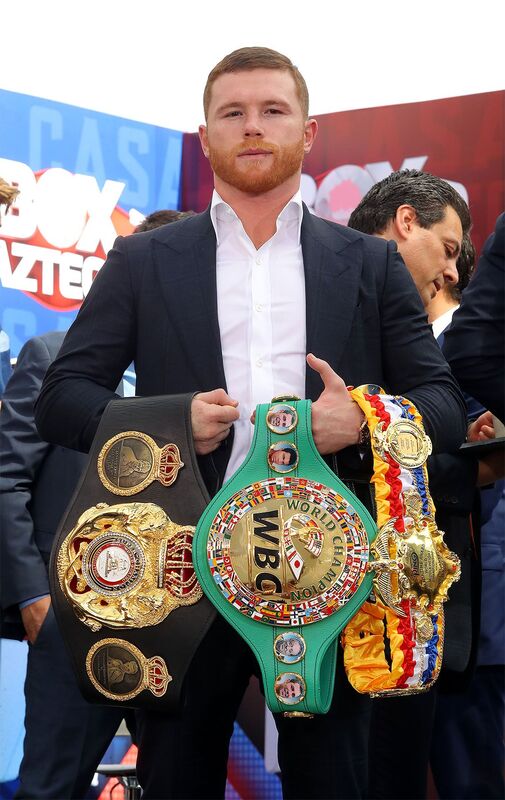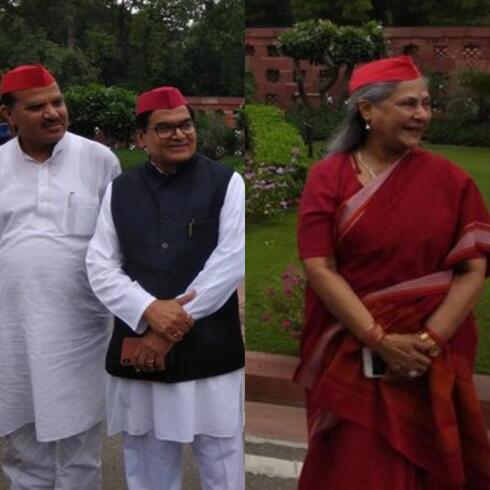|
It’s the greatest love story in the history of perfume, which by definition means its end was both tragic and utterly enshrouded in mystery. Perfume is such an evanescent thing; how could we expect a romance born of that molecular milieu – its makers and users all caught up in a frenzy of invention and indulgence -- to last -- to morph into something more static instead of self-consuming? Fragrance courtships are comets and firecrackers. The question is why -- what was the proximate cause of the parting? Even if predetermined, a celebrity split can’t help but engender a great deal of curiosity in an entertainment-hungry proletariat (y’all be watching Depp-Heard Round 2 in part for that reason). Was this a lesson about the peril inherent in colleague copulation? Because the circumstances surrounding the split might suggest this was a great deal more. They didn’t just break up – they left their fiery relationship to marry other people who don’t quite strike me as their soulmates. And they continued working together, though remotely, in a most painful way, it seems. We’re talking, of course, of Caron founder Ernest Daltroff and Felicie Wanpouille, a dressmaker who’d begun taking on clients at the age of 15 and left her impoverished childhood home to move to Lille with a traveling salesman just five years later, only to ditch him for the bright lights of Paris (if Caron’s official 1984 account can be trusted). Clearly, she had an inclination -- likely half native, half meagerness-induced -- to escape. They crossed paths after Felicie moved to Paris, their both having offices on the Rue de la Paix. That he soon made her creative director of Caron, empowered her to commission all bottle designs (the most memorable result of which was the black Baccarat beauty with the gold-flapper-headband ring for perfume Nuit de Noel) – and marketing, then gave her a 50 percent ownership stake is fragrance lore. That they fucked while collaborating in business is no less known – and given their Gallic sensibilities, a turn hardly unexpected. Daltroff, born in 1867 to an upper-middle class family and already well traveled by the time he founded Caron officially in 1904, having toured South America and the Middle East, labored on formulas in a villa in Asnieres, supposedly while wearing blue gardening overalls on top of his suit. “He left to her the choice of colours, the shape of bottles, the pattern of the ribbons,” reads the 1984 Caron book, “The Secret Charm of a Perfumed House,” by Gregoire Colard. “Felicie signed the order forms for the factory with the name ‘Madame Daltroff.’ They were not married, but one day Daltroff had presented her to his staff as his wife and no comment had been [made].” They lived together in a flat on the Boulevard Pereire. He was 5’6” with chestnut hair and eyes the same color. She was seven years younger – just 32 to his 39 when they met in 1906 – with thin eyebrows and thin lips, thick glasses and slicked back hair. She appeared a stern society lady unbothered by her appearance both astigmatic and avian. He was besotted -- and her confidence, that air of authority she possessed, perhaps a result of her near-unassisted rise from poverty, no doubt played a part (famed fragrance bottle designer Pierre Dinand, in his emails with me over the past month, described her as “a small, discreet and introverted woman,” which I think accurately defines not who she was so much as who she seemed to be to outsiders unfamiliar with her strong sense of aesthetics, but who the hell am I to gloss a line of Dinand's?). The book Caron released in October 2000 by Jean-Marie Martin-Hattemberg actually reprints a letter Ernest wrote Felicie from Grasse in 1913 while on a business trip: Dear Felicie, I’ve just returned to the hotel and have this sudden urge to write you. The reason is without doubt the autumn light, iridescent with the flamboyant colours of the plane trees in the Mirabeau Square and that have not yet been stripped bare by the perfumed mistral. Does that make you smile, Felicie? Perfumed mistral!! That could be the name for a new Caron creation. Is it too audacious? Nevertheless, does not this great wind, after its cavalcade down the Rhone Valley, carry all the scents of the Midi that are carefully gathered in the distilleries in Grasse? And yet, though absence may make the heart grow fonder, it is nevertheless cited by that same book as the reason the couple grew apart. “During his absence, Félicie has changed,” writes Martin-Hattemberg of a 1924 trip taken by Daltroff, who spoke five languages. “The couple is experiencing deep relationship difficulties. Ernest, inattentive, thinks only of his business and seems to be neglecting his life as a couple. Félicie is bored alongside a man without fantasy, too absorbed in work and who no longer sees her as a companion but as an associate. Very quickly, discord sets in. Arguments and resentment [tear] the couple apart.” Colard traces the disharmony further back, to 1922, when Felicie officially received half-ownership of the company, although in his telling, this was no simple split of shares but part of a tontine insurance arrangement, that is, an annuity that would pay out more to the person who lived longer. While these are not uncommon in France to this day, it does make one wonder whether Felicie had a kind of premonition of what was to come. Or maybe I misunderstand the nature of French insurance (which sounds awfully morbid). Colard on Felicie: “She [had] realised that in case of misfortune she would be entitled to nothing…It rankled [her] that Daltroff had never married her, even if only a few people were aware of the fact. “She never complained of the situation, for she was not the type to confide in others, but she had become more calculating. She felt that in the circumstances, their relationship must henceforth be on a purely business footing.” This change in attitude caused Daltroff great anguish, in this telling so much so that Daltroff confided in Caron’s newly-hired second nose, Michel Morsetti, that he never should have let business interfere with his romance. Which would have been a rather sensible reaction. He was then 55, in 1922. Even if she wasn’t the great love of his life (and she seemed to be), he wasn’t likely to find in his remaining time an alternative who was. Yet this account, like all of them, is self-contradictory, incomplete, baffling. Felicie wanted a share in the business – wanted to be an equal, Colard explains. And yet, he goes on to say, of Felicie’s evolving mindset in the mid-1920s, “She could no longer stand living with this austere man, devoted heart and soul to his work, with never a touch of fantasy about him. She needed freedom to breathe, to indulge in luxuries.” So which was it? Did she desire civil society’s official enshrinement of their bond or mere insurance? A greater appreciation of her work or her sense of adventure? An expanded remit or greater extravagance? And if she desired it all, to which aspects did Ernest ever object? Answers to all of those may never be found, but that travel was involved proximately in the breakup seems something of a consensus. In Colard’s version, Felicie doesn’t bristle at a trip taken by Daltroff but instead utilizes his embarkation on one to flee the coop, moving out of their joint apartment on Boulevard Pereire permanently and settling in a suite at the Ritz. “When Daltroff returned to find the flat empty,” Colard writes, “he had a terrible shock, which resulted in a bout of pneumonia, followed by a nervous breakdown. Once back again, he shut himself up in his laboratory, from which he scarcely emerged, even on Sundays.” Pierre Dinand, the aforementioned perfume flacon designer, thinks there’s an element of promiscuity absent from these retellings. He is currently researching Caron’s history for its latest owner, Ariane de Rothschild, who will hold an exhibition of classic Caron bottles this November at the Places d'Or at the Hotel Meurice. Dinand pins the breakup on a flirtatiousness I’ve never in other parts heard imputed to Daltroff. “Ernest was a seducer, a womanizer,” Dinand told me, adding that he and Francois Coty used to gather to watch Isadora Duncan dance nearly naked at her dance school at the Hotel Byron, rue de Varenne. Dinand, based on conversation with two prominent perfumers in the 1960s, says Ernest had an affair with the dancer sometime between 1908 and 1910. “About their sentimental separation,” he said of Ernest and Felicie, “I have the impression that it is following a trip to Italy on Lake Como, to Bellagio.” ______________ If the whole breakup seems rather unexceptional, especially for business partners, one of whom was perhaps – perhaps – a tad lecherous, I suppose that’s because, taken by itself, it really was– that the passions and yearnings of these two souls lost to each other attained a dolorous significance only in the years after the undoing. Daltroff never strayed far from his organ of ingredients at the Asnières factory. He seemed to coworkers lonely, irritable, consumed. Felicie remained in the boutique on the rue de la Paix. They communicated only as much as was necessary. And then, four years after Felicie first demanded her half of the company in writing, something rather unexpected occurred -- unexpected not so much for her age – though 52 was hardly young in 1926, and a two-decade disparity in birthday seems sizeable even for France – but the romantic past her corporate post must have always recalled -- at least, for everyone around her if not her herself (or maybe I’m just prude about French office romance): While still co-running Caron, Felicie married a 35-year-old electrical engineer from Douai named Jean Gabriel Isidore Joseph Bergaud. What did Felicie find in this man she didn’t in Daltroff? Her mother died that year – was that an unwelcome reminder of her mortality – an event that coaxed her into an arrangement about which she was otherwise unsure? And what of this: That salesman who’d taken a young Felicie to Lille to live with him when she was just 20 – one reason he gave for his distemper was a doctor’s pronouncement that Felicie was barren, would never bear the man an heir. How did that added element play into this marriage, which was supposedly kept secret from Caron staffers for a period? Had Jean Bergaud no desire for children (power to him, if so) – was he seeking in a much, much older female companion a partner less romantic than pragmatic given prevailing social mores? This is part speculation, sure, but some of these elements spilled over into the workplace most remarkably. Felicie supposedly couldn’t tolerate the sight of a pregnant staffer – she sent home any Caron employee with a noticeable baby bump. The year after Felicie got hitched, the dancer Isadora Duncan died in a disturbing auto accident when the scarf tied about her neck, becoming entangled in the car’s wheels, choked her and hurled her from the auto and onto the ground. Meanwhile, Ernest kept toiling away at his craft, in the factory, away from the city’s glamor, distant, if only geographically, from the now-married woman who somehow got away. “No explanation can justify, today, the separation of Ernest and Félicie. Wounded and bitter, Ernest Daltroff finds himself alone,” writes Martin-Hattemberg. “He finds it hard to bear his loneliness and his home on boulevard Pereire remains too imbued with the memories of a lost happiness.” So Ernest sought solace as the jilted have from time immemorial, and he, too, wedded someone else – also someone 20 years younger – one Madeleine Briet, in 1932, three nights before New Year’s Eve, almost as if he was trying to squeeze in the nuptials so as to start 1933 fresh, as if such an external rite could ever work magic upon a hurt inside. 1933 – a year in which he sought renewal. 1933 – the year in which Hitler rose to power. We can trace the sad course of the ensuing decade, Daltroff’s last, from the records of various ports’ entries and exits, as the perfumer, ostensibly fleeing fascism as a Jew but on the run from his feelings in equal measure, settled in Geneva, Montreal, New York. Always on the move. Working for Caron from a distance whose measure was far greater than the obvious gaps in time and space. Madeleine’s 1941 Declaration of Intention Form, filled out so she might obtain US citizenship, outlines the very end, seemingly. She and Daltroff took the Delaware & Hudson Railway train from Montreal to Rouses Point, NY, on June 29 or 30, 1940, settling ultimately in Manhattan at the Hotel Beacon at Broadway and 75th. The form wasn’t signed by Madeleine until May 7, 1941 – exactly seven months before Pearl Harbor and three months after her husband, Ernest Daltroff, had already died, of cancer. Of course, this wasn’t quite the ending – life goes on. Felicie lived on in Paris until 1967, when she passed at the age of 93. And Daltroff’s wife, having seen him perish of cancer and then lived as a widow on Park Avenue, married a wealthy, divorced doctor, with whom she moved to Quogue, Long Island, at the Eastern tip of the Hamptons, in 1947 (upon which occasion she exhumed Daltroff from his resting place in the Bronx and interred him in Quogue, in a cemetery now home to former Major League Baseball commissioner Bowie Kuhn). No, this wasn’t quite the ending for Daltroff – not just because those who survived him kept on – but because that declaration his wife made to attain citizenship for herself following his passing – it elides a key detail, one found on the scanned manifest of a ship called the SS Manhattan.
Now, Madeleine had said she’d come to New York with Daltroff by train from Canada and maybe she had that June 1940. But earlier that same month, Daltroff and his wife are listed as passengers on the SS Manhattan from Genoa, Italy, to the US (alongside wayfarers from Zagreb, Tel Aviv, Sydney and Bogotá). That Madeleine may have fibbed on her citizenship form doesn’t interest me so much as her presence with Daltroff on that ship. Here you have an essentially retired perfumer, in poor health and supposedly in tremendous fear of European fascism, with a safe haven in Canada and the ability to construct one in the States, and he’s traveling to Italy? What could the man find there at this point in time, given his failing body and the continent’s commensurate fragmentation? The world was fucking crumbling. And then you recall that Felicie chose “Bellodgia” as the name of a 1927 Caron offering in homage to the village of Bellagio, Italy, whose romantic sweep into Lake Como had always enchanted her. It was the exotic spot to which Ernest and Felicie escaped once and the site, perhaps, of their final tiff. Ernest Daltroff, though married to another woman, having lost Felicie nearly two decades earlier, imperiled by threats from within and without, a man sensing his end – he returned to Italy. No, it wasn’t just another breakup. I despised Eddie Hearn straight-up taking Saudi Arabia's blood money to host the Joshua-Ruiz card there -- but that's not news to anyone reading this. That Hearn is now talking about Saudi Arabia as a future site for multi-division champ recent signee Mikey Garcia's fights is further disheartening but unsurprising. An examination of his Capital One card ("What's in your wallet? Wait, is that a journalist's blood? Quick, stuff it back in your pocket before anyone sees!") would likely show the Saudi intake is what enabled Hearn to make such a large bid for the "Life Cereal Sniper" (Mikey is 32 now, but it's still not too late for him to adopt that nickname, which would endear him to fans again after his recent years of bizarre opponent selection). But none of what I am about to write concerns the above figures (double entendre intended) or even similar human rights advocacy -- despite what appear to be similar circumstances. Top Rank, the American promotional outfit with the most robust network of international alliances -- and talent scouts, too, though those two categories overlap -- holding a fight card in China on the eve of the Super Bowl -- Feb. 1, 2020. The idea of the card is twofold -- one, it'll celebrate Chinese New Year, and therefore further advance Top Rank's recognition in Xi Jinping's vast fiefdom. Two, it'll make Top Rank tons of money in the immediate present. I don't have figures -- as I keep telling readers, I never set out to be contract-revelation guy -- if there's any Schefter, Passan or Woj in this, it's merely because boxing's ever-shifting alliances -- many unexpected, some highly disreputable -- make the sport utterly incomprehensible without these analyses. But even without numbers, I can explain the lucre. There's a Chinese family-owned company called Mission Hills that claims to run the largest golf complex in the world (it has 12 courses was built in 1992 atop a some sort of garbage-dump-wasteland. The Chu brothers, Ken and Ten, have run the company since their father passed away 8 years ago. And their initiative, beyond buying and building more golf resorts, has to been to expand into other sports. They've done this with varying success (they were instrumental in expanding the NBA's presence in China, but I dunno which side of the ledger that belongs on, now that official Chinese policy is to spurn the Association because a single general manager voiced support for the democracy protesters of Hong Kong). Two years ago, the Chus struck a deal with FC Barcelona to open up a soccer academy on one of its properties (in addition to the two IMG-like academies already present at Mission Hills, which serve as training sites for China's soccer and tennis national teams). Ronaldinho visited Mission Hills as part of the signing -- because that's a key component to all the Chu deals: They want the world to see incandescent celebrities on their premises at all time in order to attract business. The Warriors championship team has been paid to play there (again, the basketball thing was going well for a while) -- and Nicole Kidman and Morgan Freeman have received similar appearance fees without even having to tee off. They just kinda stood around. The biggest Chu coup of the last year? In September, they came to a preliminary agreement with Floyd Mayweather for the domestic abuser to box at the Mission Hills resort on the island of Hainan -- known as Haikou. On Sept. 17, Mayweather was supposed to fly to Hainan, tour the island, eat at a lavish reception -- then wake up the next day and participate in a ceremonial signing with Ten Chu at 10 am, to which the press was invited. He'd then hold a boxing tutorial for kids before returning to fight the meaningless exhibition in 2020 against a Chinese fighter to be named later (just one more publicity stunt from him -- this time, instead of facing a tiny, young kickboxer -- Tenshin -- or a rowdy Irish MMA star -- McGregor -- neither of whom had ever boxed a single professional round in their lives -- he'd face an anonymous Chinese boxer with rounds under his belts but likely minimal talent). That plan was cancelled when Floyd literally failed to show up, despite the Chus indicating they'd reached a preliminary deal. So now you had a wealthy, golf-resort-proprietor that badly wanted to host fights. Enter Top Rank, which was introduced to the Chu brothers via their long-time Chinese co-promoters, a company named SECA. I don't have figures, as I mentioned -- but that's the big money. And Top Rank planned to use it smartly, putting on a main event in Hainan featuring their unified champion light-heavyweight Artur Beterbiev against the 21st-ranked boxer in that division, who'd be overmatched but maybe could stay upright for a few rounds and who, no matter the action, would still be Chinese -- the key required trait. If all this sounds a basic set-up to a rant, like I'm about to mention China's human rights record, you are very much mistaken and 100 percent right. Beterbiev wouldn't agree to appear in China -- as a Muslim, he takes great offense to China's mistreatment of coreligionist Uighurs (an ethnic group related to the Turks) in the country's west, one million of whom are said to be detained in concentration camps (it didn't help China's lying about this when documents about official Uighur brainwashing were recently leaked). So Beterbiev was replaced as the card's headliner with undefeated 140-lb. champ Jose Carlos Ramirez, who usually fights in Fresno, California, where he fills up a 14,000-seat arena. It was a strange substitution, but Top Rank was scrambling, understandably -- this was too much to forgo. And again, I've got no issue with it. The Chu brothers were screwed when China shunned the NBA -- they'd put in so much work for the league on the mainland, including opening up a museum exhibit about it. Moreover, the company is registered in Hong Kong (though its business is on the mainland) and CEO Ken Chu, while not outright supporting the protesters there, actually wrote an op-ed supporting them, if only very mildly (you have to read between the lines -- he talks about how the authorities need to bridge a generational divide with studnts -- which is about the most he could say without all his companies resourced being seized by the government). So this story isn't quite like Eddie Hearn's direct acceptance of Saudi government cash -- the Chu brothers --both graduates of Canadian universities --, don't represent the state -- to the degree that any private Chinese enterprise can even be called that (#Wanda #Anbang #MaybeHuawei). To the degree a corporation there can operate without Big Brother's approval (their first golf course, built in 1992, followed the government's opening of the south to commercial development -- how the Chus got their parcel remains an untold story). Back to the badly abused, tortured and detained Uighurs: the Chu brothers can and probably should do something to remedy that grave injustice -- and maybe secretly, they already are. Philosopher John Stuart Mill in 1867: “Bad men need nothing more to compass their ends, than that good men should look on and do nothing" (JFK once wrongly assigned a variation on that quote to another philosopher, Edmund Burke, which is why it sounds familiar but off). And that's what has made this fight deal so odd: There is something being done in boxing with the Uighurs. An examination of the Top Rank undercard -- mostly assembled by Chinese promoter-partner SECA -- reveals that two Uighurs from the capital city of their nominally semi-autonomous region -- Urumqi, Xinjiang -- are featured prominently in bouts -- one of whom is slated to fight on the ESPN broadcast along with the main event. First meet 12-2-1 super-middleweight Zulipikaer Maimaitali, whose bout won't be televised, not for nefarious reasons but for lack of time, which might be just as well for the ESPN announcers -- if Mark Kriegel were to explain the signifance of Maimaitali's appearance and dress, he might be subject to a most harsh interrogation (his passport having already been snatched when he was removed from the set mid-show). Also, note the Chinese flag just below -- we'll return to it. Now meet Ainiwaer Yilixiati, a 17-1 middleweight who will be shown on ESPN -- and note the t-shirt he's wearing, which are the Chinese hanzi (characters) for the word "China." The question the presence of these fighters on the undercard posed was pretty simple: Why would China work so hard to erase all aspects of Uighur culture and yet allow athletes who are a product of that culture to exhibit their strength and heritage on a big stage? And this inquiry wasn't spurred by a single sample case: I began looking at other Chinse fight cards, and sure enough, ethnic minority Muslims (besides Uighurs, people of Kazakh heritage live in the western province) were the stars of practically every show. This prompted me to question a range of figures, including a trainer in China -- Abraham Darwish, who has worked with champion Xu Can, a member of the ethnic Han majority but also Bo Shan Bo, an ethnic Kazakh who grew up in China -- and a boxing manager -- Ye Tian, whose clients include Uighurs and Hans both (he reps the aforementioned Yilixiati, who'll soon be on ESPN). Darwish: "Of course, I know there are problems but every country has problems with [an] ethnic minority...The Muslim fighters are better and stronger...because athletics for them its the only way out." If they're getting out, I wondered, where exactly are they going? Tian, the manager: "I have led my boxers to fight in Australia, India, Russia, the Philippines, Kazakhstan and other countries, as long as they have a certificate from the Chinese boxing association. In addition, the Chinese government will not deliberately show off the achievements of Uighur boxers, and of course it will not suppress them. In a word, everything is normal and reasonable." I'm sincerely grateful for both Darwish and Tian's generous replies to me, but they're both Chinese fight insiders, for better or worse. I'm not saying they misled me in any way -- more that they may not be able to see what those outside clearly can. And that pattern looks like this: In the run-up to the Beijing Olympics, the Chinese embraced Uighur boxers because Darwish is right -- they're damn good (keep in mind that they're really from the same area as the Eastern European fighters currently dominating the sport). China wanted to win medals. Incidentally, one of the Uighurs on the Top Rank card, Yilixiati, has fought in the crazy Water Cube Beijing erected for swimming at the '08 Olympics -- that's what's become of that structure. It's a fight venue some nights. Even so, it's not like boxers' communities in Xinjiang saw any benefit from that tolerance. In July of '08, after the government killed five Uighurs it branded separatist terrorists, a BBC reporter visited the farm on which a Uighur Olympic boxer grew up and began asking questions. From his report: "Analysts believe that militant Uighur separatism only has the support of a small minority. But it is hard to establish definite facts about this - whenever I broached the subject replies were quickly and defensively 'on message'. For example, one man said 'The Chinese help us. They are more educated than us, they are helping us develop.'" The BBC reporter then went to the capital of the region (where the Top Rank card fighters live), Urumqi, and observed the boxer "training in front of a banner that read "Above All Else, the Motherland." Still he reported seeing no armed military men anywhere, no noticeable security apparatus or police presence. In the years, after the Olympics (much as Russia invaded Crimea after its own Sochi Winter Games), China stopped holding back (and here's it worth mentioning that Xinjiang sits atop a ton of oil, although if this is a war for resources, I'm not sure why concentration camp brainwashing is necessary: By December of 2014 -- five years ago -- China was detaining Uighurs left and right, its justification the ostensible violence of a separatist movement. And here's where you first see publicly the way the Chinese went from embracing the boxing Uighurs and Kazakhs provided the country to rejecting it as just another element of an unwanted culture. On Dec. 12 that year, a Friday (the Islamic sabbath), the provincial police produced released a list of 75 "specific signs" that might signal a person was a radical, a terrorist. Women covering their face in veils? Check. Not drinking alcohol? Check. Multiple beds in the single house? Could be a sign of a terrorist cell, so...check. Don't get it wrong: There actually were awful terror attacks, as Darwish, the boxing trainer, detailed in his response to me. In March of 2014, nine months before the 75-Signs-You're-a-Terrorist list was created, a violent group stabbed a massive number of people with knives at the train station in Kunming. Darwish told me he was actually in Kunming at the time and remains "shocked" about it. Twenty-nine people were killed and 143 more were injured. The problem, so to speak, is that it was the Chinese authorities who labeled the rampaging murderers Uighurs. And while it very well may have been, one has only the word of a concentration-camp-running cabinet to trust. And also complicating the attribution of an absolutely heinous act: as evidenced by the list of 75 ways to look terrorist-y issued not long after, the Chinese clearly wanted to paint a far broader swath of Uighur society as extremist and violent than was ever the case. "For the most part Muslims in China are a peaceful loving people who don't trouble anyone and are not troubled by anyone," Darwish wrote in his email. Which leads us to number 33 of 75: If someone buys boxing gloves, he or she might be a terrorist. Boom: Suddenly, a culture of fighting once celebrated in Beijing was a public threat. Boxers who looked a certain way were now more a menace than an asset. I'll be the first to admit I don't understand what's happened in the five years since -- what led us to a situation in which two Uighurs fight on a Top Rank card while a million of their relatives are imprisoned (the US State Department says it might be 2 million). A month ago, a 29-year-old woman named Mihrigul Tursun spoke to reporters at the Washington Press Club in D.C. before meeting with lawmakers two days later. She had been detained three times since 2018, and the description of what she endured is beyond disturbing. Many publications led with the words "crime against humanity," but I appreciate the brutal quote the Telegraph used as a headline: "I begged them to kill me." God bless Japanese artists and otaku -- one illustrator produced a manga to convey Tursun's story to the widest possible audience. That comic has since been translated into a number of languages and viewed millions of times online. Now, you tell me -- how in the hell can this treatment go down simultaneous to the high-heels sashaying of ring card girls between rounds of a Uighur-dominated fight? How does that make sense? It's so jumbled and odd I've literally asked a woman at Human Rights Watch whose expertise is Uighurs for help in understanding it (if and when an explanation comes, I'll insert it here). Now recall what I asked you to note -- that big Chinese flag spread out behind Zulipkaer Maimaitiali after he won. The t-shirt reading "China" in Chinese character on middleweight Ainiwaer Yilixiati (the Uighur language is actually Turkic and most certainly does not use hanzi characters). Are these symbols they have to embrace to get fights in China? Is the deal unspoken but obvious -- we'll give you a big platform so long as you celebrate Motherland while on it? Before Mihrigul Tursun was released from a concentration camp for the third and hopefully last time -- she has since fled to the US, whose immigration authorities I can finally be proud of the first time in three years -- Chinese camp officials made her read this statement on camera: "I am a citizen of China and I love China. I will never do anything to harm China. China has raised me. The police never interrogated me or tortured me, or even detained me.” Is that what the boxers' Chinese flags and shirts are -- a sartorial equivalent of that false-praise-propaganda? Are they Theresienstadt fighters -- put on display to show the world how innocent this whole detention is -- how vibrant the community is when concentrated in one spot? A year ago, the Chinese governor of Xinjiang said the camps "enhance" residents' lives, makes their existence more "colorful." Look again. Of course, China could prove that its facilities aren't torture camps but vocational learning centers (one common official line), if it allowed journalists or NGOs or UN observers in -- if it let in anyone at all. Obviously, that won't happen. Less obvious but more actionable: Google, in a classic act of Big Tech negligence, is abetting the Chinese. If you search the name of the tortured detainee I earlier mentioned -- "Mihrigul Tursun" -- the very first video entry to appear is a Chinese state-produced piece on how she's a liar. The page also suggests a related search for "Uyghur actress." It's abhorrent -- and an excellent example of the way state actors, using a tool as simple as search engine optimization, can delegitimize important voices and broadcast instead slanderous misinformation. The question of whether the elevation of Uighur boxers contributes to the country's larger abuses is a tough one. None of the fighters could speak out against these crimes without being silenced and discredited almost immediately. China controls its Internet -- the messages spread about the boxers would not be their own but their captors'.
Also, if these guys fight as a natural extension of their culture, isn't further repression to ask them to desist (unless their abstinence will really effect change)? As for Top Rank, ostensibly, it had no idea it was wading into this morass. Beterbiev's refusal to be the main event was a surprise and the company wasn't even responsible for stocking the undercard -- that's almost entirely the handiwork of Chinese promoter-partner SECA. What Top Rank was focused on entirely here: taking huge wads of cash off the golf course kings of Asia. As I said, this isn't as simple as Eddie Hearn and Anthony Joshua accepting blood money from the Saudi government to sport-wash its sins. The money here comes from putting greens, not western prisons. I'm not trying to exculpate any of the above boxing folk-- ignorance and blind venality are no excuses for misbehavior. Rather, I'm reporting misbehavior and wondering how boxing has managed to keep its distance (we're usually at the center of wrongdoing). And whether that's a good thing. I'll let you know when/if Human Rights Watch gets back to me (I feel like prizefighting isn't an issue they'll prioritize during this crisis). In the meantime, tune into ESPN on Feb. 1 to see those lucky enough to remain free. Happy Thanksgiving. At some future point, I'll likely bow away from boxing writing for a period of time (so long as my health permits me to go back to the wider world). I don't want to leave these warriors and hustlers forever, but I never intended to stick to this topic exclusively anyway. You know Danny McBride, former star of HBO's "Eastbound & Down" and "Vice Principals"? I reviewed his first movie (you've likely never seen it) 11 and a half years ago -- was a short review and not particularly well-written, but that's not the point (nor is the fact that on Metacritic I was the most negative reviewer of the 22, just barely edging out the Chicago Tribune's writer, a ranking of which I'm proud). That said, some boxing people are more soulful and understanding of each other than anyone outside the boxing bubble. There's tremendous love here (its counterpart is perhaps desperation) -- maybe not enough to overcome the darkness but enough to make an exit uneasy. I am an intermittently happy captive. Perhaps that describes you also. And of course, I always knew boxing was a murky biz. But this is a helluva morass these days, even if it's not of historic proportion (putting aside the ultimate tragedies fighting can lead to -- because this ain't even about that). It's about Eddie Hearn, the Matchroom Boxing promoter (read, beneficiary of a father's lucrative darts business) -- who may better me by a single inch in height but seems to fall ever shorter when it comes to morality. Credit here to writer Paul Magno for discussing some of the following first. Sure, Hearn let Dillian Whyte fight despite the heavyweight failing a doping test, putting the opponent's life at risk. Sure, Hearn is taking Saudi money without even addressing the whitewashing of the Khashoggi killing -- except to complain that he's being singled out unfairly, and hey, you Writer, why didn't you effing cry foul during the Formula E races and the WWE events? (Of course, moral people did do just that -- John Oliver ripped WWE for taking the Kingdom's bloody-money for an event called "Crown Jewel" just after the murder; also, I've said this before but it bears repeating: the Matchroom Boxing-DAZN heavyweight fight is not a different entity than the WWE shows or the Formula E races. The sports events in Saudi Arabia are all handled by a marketing firm called Hill+Knowlton. They signed a deal in 2018 with Saudi Arabia essentially to stage all these events. They bring entities on board with a single game plan (put Westerners on the stage, hide the saws and hydrochloric acid). Hearn's event isn't disparate and deserves the same scorn John Oliver had for the WWE's move. Also, one more quickie -- why does Hill+Knowlton think that having its own in-house "writer" pen an article about the match will make it seem normal? How fucking condescending is that -- the presumption that we readers won't know the difference between advertisement and journalism? And if we do fail these days to make that distinction, how awful, then, for this team of marketing hacks to further the cause of misinformation, to muddy these turbid waters more with faux-articles (#AgitProp)?) And now, for the reason Eddie Hearn is getting it -- one he actually cited long before I began writing this, in an interview earlier this year with Gareth Davies, whom I enjoy bantering with at fights, even if that's an implicit endorsement of his wardrobe and mien (kidding, GAD, mostly). "I grew up thinking I was a hard nut, and in Brentwood School I was," Hearn said. "Anywhere else I was a pansy." Fast-forward to fall 2019: Hearn trying to retain an opponent in Julio Cesar Chavez Jr. who won't take a drug test and then defying America's foremost fight commission in Nevada by trying to move the fight and retain the opponent. His announcing loudly on video that if you get good numbers -- readers, viewers, sperm count -- whatever -- he'll pay for your hotel room and transport in exchange for your coverage -- the same way he has with ESPN's Dan Rafael (per Eddie's own smug words) -- not only are these bizarrely candid admissions, they're quite possibly suggestions of violations of America's Muhammad Ali act (we need better legislation and a national commission, but that's the law we have for now, so we might as well enforce it). When record companies paid radio hosts to spin their tracks -- or rather, when that practice finally came to the attention of Congress in 1959 -- a House Subcommittee opened a governmental investigation that took years. And here we have Hearn smiling his ass off, admiring his own dimples (though he can't see 'em he knows they're there), telling the world essentially what Congress had to pry loose from his musical counterparts with difficulty. That he's an incorrigible grifter-gifter of previously undeclared and probably illicit encouragement. (That said, if he's going to continue offering these handouts, he's right: the writers have to learn to say no. It's ultimately on them.) And for the record, I've had lunches on promoters (and tried to disclose as much whenever necessary). At a dinner some years back, I insisted on paying but had the check snatched from my hand by a drunk promotional outfit person (it's a good story for another time). I've taken lots of freebies -- I love the Moleskine notebook the World Boxing Super Series handed out. But obviously, as in the case of declaring items at customs, there are certain lines drawn and accepted. Some things can be taken if declared. And some things can't be brought into a country period. What I know for sure is that only a few types of people would proactively pronounce their smarminess -- an evil, irrational dude, a dummy, and a prince. I dunno Eddie well, but I'm gonna say he's the third -- the guy who always got by. Or in his own words: "I grew up thinking I was a hard nut, and in Brentwood School I was." ____________________ I've no personal animus. But right now, I'm tired of people doing bad things and conceding as much without repercussion. That's Trumpian, and it's time for my very modest bi-annual rebellion. Staying with Eddie: His senior partner -- DAZN and Matchroom being basically a merged company right now -- and no, Eddie never disclosed ownership stakes in anything -- is Len Blavatnik, a notorious oligarch whose wealth stems from the privatization of Soviet public companies and also the plundering of Kazakhstan's money (literally). Len Blavatnik and his brother, Alex, both have opened off-shore firms (where they've likely stored some not-so-allowed items, but I can't say that for sure, of course). Len opened a firm in the Cayman Islands and Alex chose the Bahamas. But here's the fun part of digging into even the richest and most powerful dudes: they're still human to a hilarious fault. The Cayman firm Len opened 21 years ago (he has since closed it) was named "ZZZ-El Porteño." I still can't tell you what the sleeping Z's were about, but "porteño" means a man from Buenos Aires -- its usage apt because one of Len's Cayman partners, real estate developer Alan Faena, does indeed hail from Buenos Aires. Also, Faena insists on wearing white nearly always. It's pretty amazing. To repeat -- I can't tell you what's in Len's account nor can I say why Eddie -- whom I'd love to have a heart to heart with, honestly, if he'd be down for that, so we can see each other as humans and not antagonists, so I can try to understand him and vice-versa -- has chosen this past week to announce that rules are for suckers.
He isn't wrong -- rules are for suckers far too often in the end. There's still tremendous nobility in working to apply them in every case, though. You never know which one might end up rewarding the little guy -- the honest one. And obviously, this DAZN discussion is just a small part of a wider boxing issue. We be some dirty folks -- myself included. Do you have any idea how many fragrances I stole from the Esquire fashion closet in the summer of 2005? The origins of MTK are more problematic than I know how to handle. Rising featherweight Mick Conlan seemingly opened a corporation in Malta just after turning professional in 2016. Maybe that's used for good -- maybe not -- I don't know. But speaking of that Faena-colored edifice in which Orange Baby resides: Some days you feel like it's enough. No more crooks, no more sleaze -- not without some reply in some way. Come at me, Brentwood. Maybe we can emerge better -- both of us -- for having had it out (verbally). I come as the Lorax, if he spoke for uncomfortable boxing realities instead of trees, was less Eco Danny DeVito than strung-out pugilism pedant. Specifically, I’m all about the Rafe Bartholomew’s recent Athletic piece on the World Boxing Super Series, the first sentence of which credits Kalle Sauerland, pan-European second-generation boxing jive artist, with the tournament’s genesis: “Perhaps the greatest trick this devil ever pulled was creating an event format that culminates with some of the toughest SOBs on the planet hoisting a giant, golden slinky.” Rafe is right – the tournament fixtures have been gripping. Usyk-Breidis was a highly technical toss-up between 200-pounders. Dorticos-Kudryashov was a KO I watched on repeat for the latter’s Uzo Aduba eyes as he fell. There have been wars and walkovers but a kind of inescapable truth-seeking process no matter the action. We fans have been given four chances (soon to be five) to discover who the true top dog is (a role Jose Ramirez may earn but not from me, not until he opts in, so to speak, to this no-ducking methodology). The Rafe strafe that went low: Kalle Sauerland doesn’t deserve credit for the instigation of the tournaments. A man named Jørgen Madsen Lindemann, who was the actual chief executive officer of this operation from day one, does. And in the gap between that first dude, who speaks at the pressers, and his counterpart, whose face I wouldn’t recognize even if Rougarou tattooed it on his chest, so many of boxing’s dirtiest issues lie. ____________ It starts with a fancy notebook. I am in Midtown Manhattan, at the southeast corner of Central Park, in the very posh Pierre Hotel, which I’ve entered only once previously, as a groomsman for a college buddy who had me and some other dude walk down the aisle to Coldplay’s “Yellow” (having never heard it before, I was moved; also, Coldplay ripped off “Viva la Vida” from Joe Satriani – give it 50 seconds). So it’s March 2017, and a small number of boxing writers are gathered in a conference room with tables and a dais, and there’s music playing and signage with Muhammad Ali’s face. Swag bags for attendees contain Moleskine notebooks and USB drives, all adorned with a logo for the “World Boxing Super Series.” A dais of unguent industry men are here to explain what that is, including: Kalle Sauerland (the younger face of his father Wilfried’s boxing operation, and who, for that reason and his slicked-back hair, might be compared to Don Jr, no moral assessment implied) and Richard Schaefer, the Swiss banker who built Oscar de la Hoya’s Golden Boy promotional outfit and then betrayed that effort by letting his talent sign with éminence grise Al Haymon instead. There’s an undercurrent of sadness attendant to all prizefighting promotion, a pathetic quality to its PT Barnums – and no small element of unconvincing puppetry. The Pierre event is no exception. Under the company name Comosa, the execs promise to hold multiple boxing tournaments in different weight classes as a running venture and disburse $50 million per season. They’ve licensed the name and likeness of Muhammad Ali for the trophy for an undisclosed sum and they’ve paid the arranger of the UEFA Champions League theme to create a similar sound for their broadcasts (the dude’s named Matt Clifford and his label loves mentioning the work he’s done for Mick Jagger). But despite the presence of Showtime execs at the table behind me, no TV rights have been sold, and it only gets messier from there. Here’s what’s not emphasized at The Pierre – but can be sensed, in the vagueness of the thing juxtaposed with the specific, large outlays (an Ali trophy?). Here’s all that follows: Schaefer is tasked with securing an American broadcast deal – perhaps specifically with persuading Haymon to fork over some Showtime dates or just to give his consent to this programming being slotted alongside his own on the airwaves – but Schaefer fails and leaves the group altogether in the first season. (Supposedly, Sauerland met with Bob Arum without Schaefer and the group was in ultimately unsuccessful talks with premium movie channel Epix,) Previously unmentioned Roberto Dalmiglio, who’s also seated at the dais, has served at sports-rights handler MP & Silva for the seven years prior to 2017. By absolutely no coincidence, his former firm is tasked with selling TV rights in most of Europe – more on that in a moment – an effort he’ll oversee. Yet the speakers at the event promise worldwide TV rights have already been sold everywhere on Earth but America -- which is just a deception. The reality is a kinda-quid-pro-quo, WeWork-y instance of self-dealing: All Dalmiglio has done is drop those rights in the collective lap of his former company. And that must not go too well either, because Dalmiglio will be gone by the second season, and he’ll falsely reduce his tenure at Comosa on his own LinkedIn page – to just two months spent in Zurich in the summer. Of the following year. See, nobody on the dais has actual control of Comosa, though the event suggests otherwise (Sauerland's family firm, Sauerland Promotions, does own a minority slice, but not an empowering one), which is actually controlled by a Swedish outfit named Modern Times Group (MTG) and a Swiss one named Highlight Event and Entertainment (HLEE). (Not alleging those two companies are Spectre-like or criminally secretive. Someone at the NYC event may mention them aloud -- can't remember and won't go back and listen to a an hour and a half of audio again -- but Kalle Sauerland certainly doesn't seem to be a Sam Watson-esque talismanic hustler -- a franchise face for an agoraphobe. No, Kalle acts like the boss man. And then there are the press releases.) The Swedish company promotes e-gaming. The Swiss company, based in the canton of Basel-Landschaft, on Netzibodenstrasse 23b, Pratteln, markets the Eurovision song contest. Both deal in the sports market – which is likely the reason both hid behind Kalle Sauerland – nothing screams sports expertise like utter silence. The Swedish company's CEO and president –Jørgen Madsen Lindemann – has already had press releases issued to European, non-English publications, which read, in part: “We know how big the fan base is and how big the potential of this product is, which is why we have helped create this unique sporting IP.” The press release handed us Americans in the Carlyle omits any mention of Jørgen and contains a single line about MTG and HLEE in itsby-bitsy text. See if you can spot a difference... Back to Roberto Dalmiglio (the man whose tenure shrunk from two years to two months by virtue of a resume whitewash): the press materials issued in Europe mention that while his former firm will be handling the sale of worldwide TV rights – and let’s dwell again for a moment on how bizarre it is for Dalmiglio to be in the position of bossing around the company he was just employed by – the “Nordic rights” won’t be touched. I don’t know what sort of hometown deal these Swiss and Swedish companies have made, but they don’t want to include any third party in it – that dough they’re determined to keep. And why shouldn’t they? While I’m in sitting in The Pierre in New York, Jørgen’s deputy, Peter Nørrelund, is telling the European press they’ve been working on the WBSS idea for three years.
And maybe it’s due to those companies having no sense of the money-suck all boxing promotions eventually become that the venture will fail to pay fighters in a timely fashion or give them their due bonuses, according to reports and a lawsuit, but for whatever reason, it won’t. And the funding shortages will be made up by shady, self-interested entities worldwide. Russia’s state ministry for sports will pay to host the first season’s cruiserweight final in Moscow. The 168-lb. final will take place in Jeddah, Saudi Arabia (see, Eddie – I don’t give anyone a pass on Arabia – it was never personal). This year’s 140-pound tournament, featuring Scotsman Josh Taylor, will involve an undercard in Glasgow dominated by Dubai-managed dudes. The Nov. 7, 2019, bantamweight final to be held in Saitama, Japan, just north of Tokyo – the “Monster” Inoue show – will be run by Nippon knuckling poobah Akihiko Honda, the 72-year-old head of Teiken Promotions and the Japanese partner of Top Rank – though Inoue isn’t yet promoted by either entity. One could go on forever. ________________ So here’s the pedant’s pseudo-Seussian point: The World Boxing Super Series has been so good that I’m afraid we’ve ignored its actual underpinnings for two and a half years now – and they’ve been ambiguous at best and ugly at worst, primarily due to the fact that those who started it didn’t necessarily keep it going. Are the Swedes and Swiss still involved -- or have their shares been bought out entirely -- and by whom? Did DAZN's second season fee cover only a small fraction of bills -- and did a notorious gang or government take care of the rest? Will Kalle sub-license from the Swiss Miss mates all of the tourney's expensive IP (the commissioned theme song, the Ali rights, that trophy)? I can only shrug for an answer. And if the plan was always to partner with local dudes regardless of ethics, to prioritize rubles and dirhams, I'd feel better if I knew to/from whom those currencies flowed. There are some people whose coffers I specifically don't want to fill. That’s not new – I know all about Imelda Marcos’ shoes and the “Thrilla in Manilla.” Ours will always be a school for scandal – I read Sheridan and Liebling both, I get it. And even if we had addressed our Scandinavian benefactors -- who very well might be pious folk, of pure heart -- what would we have found anyway? Surely, their money and documents are all in a Basel/Geneva/Zurich vault whose underground operations make Gringotts’ seem minor. Nor do I want storytelling in boxing to devolve into constant underbelly examinations, Twitter announcements, drug test revelations. I want fight stories to be about people – and a major shout-out to Rafe for his own work. Obviously, this piece never had anything to do with him -- he just provided me a helpful open (arigatou gozaimasu). Still, prizefighting can't be handled the same way my high school girlfriend did handsiness: There’s no going halfway with someone here. Once we let hidden owners remain that way, we are fully fucked. Because they might be upstanding. They might be wealthy. Or they might simply be businessmen locked away from my obnoxiously loud voice and Kim and Copp’s constant texts. From Rafe's writing. From the cajoling of honest boxing fans who can be truly brilliant and kind when they're not thrashing each other. At which point we are, as above-said, effed, 'cause once we've okayed a shadow player, we've forfeited our chance to hold that entity to account. And now they can they hand off something we care deeply about to the highest bidder. A warning: the following article concerns a series of ghastly deaths. This past weekend saw the celebration of Halloween begin all over the world, including two areas of Tokyo known for heavy dress-up and merrymaking this time of the year -- the Shibuya Scramble-Crossings and Ikebukuro, whose Ikehalo festival was co-hosted by a woman who makes nearly $10,000 per month dressing up as anime characters. But Friday in Japan also presented a more macabre beginning to the occasion than any cartoon mimicry ever could. On the two year anniversary of the latter's arrest, crime journalist Tetsuya Shibui presented an extended interview with the culprit of the so-called Zama Suicide Pact Slayings, an obviously twisted man named Takahiro Shiraishi. A couple of items worth mentioning from the jump: No one in this story commits suicide, and Shiraishi, 29, demands money from reporters who wish to interview him -- in his Tokyo jailhouse, the Tachikawa Detention Center -- a sum Shibui, though conflicted about the transfer, ultimately paid (Jiji Press was able to avoid paying on the first anniversary of the arrest and still extract some info). So what did this sensational, very much-unhallowed homicide incident actually involve? It's basically that one exception that proves the rule of safety in big Japanese cities -- the true story that later serves as the basis of a horror film by Hideo Nakata or Kiyoshi Kurosawa. It's truly the lowliest sort of tabloid fare -- the kind of tale society would be better off letting psychiatrists handle than Weegee-wannabe press syndicate stringers. I don't like myself for retelling it. On other hand, trafficking in filth, while not a higher impulse, is most certainly a native human desire (and one not so easily resisted). In August 2017, a man sought to rent an apartment in a complex of 12 in Zama City, Kanagawa Prefecture. He provided sufficient ID and all the necessary forms, though he left the employment field blank. He admitted he was unemployed though may have promised he had just secured a job. Either way, the rule for unemployed applicants was simple: Show a bank statement demonstrating you have the money to pay the rent for seven months -- which at one point would have been 140,000 yen, though the rent was later reduced. This man put on display a bank account with 500,000 yen (his father worked in automotive design -- my understanding is that this was the father's money) and moved in August 22. What he did not disclose: he was unemployed because his former job, as a Shinjuku "scout" for prostitution services, had landed him a suspended prison sentence. And so Takahiro Shiraishi was now the lessee of record for room 205, a flat of 13.5-square meters, with a kitchenette below a lofted sleep area. Over the next month, officials managing the complex for its owner passed the apartment eight times. On every occasion, they noticed an odd smell emanating from apartment 205 but nothing so nasty or overpowering it gave them pause. Meanwhile, with a truly heinous Twitter handle -- let's just say Shiraishi claimed to be an expert in a particular form of killing; he also used three additional social media accounts -- the man in room 205 began to approach and converse with men and women online between the ages of 15 and 26 who'd expressed suicidal intent. I don't want to celebrate illness -- I believe in interventions before sick and potentially dangerous people hurt those around them. So I do wanna get the awful details out of the way, while expressing first my sincerest condolences to the families of the deceased -- and a desire for Japan to stop glamorizing suicide as noble (its homicide rate is quite low and thus not deserving of similar mention). Shiraishi claimed he'd help the vulnerable kill themselves. When they visited his apartment, he drugged and hanged them, sexually violated their corpses, stole whatever money they had in their possession, then dismembered them, finally discarding in the trash certain parts while retaining others in coolers and freezers. Over a single month, he killed in this fashion eight young women (three in high school) and one man. One of the women's brothers began searching for her. Shiraishi also neglected to turn off the ninth victim's phone immediately. On Tuesday, Oct. 31, 2017 -- Halloween -- police, following the above tips, raided Shiraishi's apartment. A DNA test of a body part in his apartment was matched to that of 23-year-old Aiko Tamura -- the woman whose phone had pinged. Officials disclosed very little to the press. TV began replaying footage of Shiraishi's arrest, his hand covering his face. Because each act Shiraishi committed was such a heinous crime itself, and Japan allows endless "re-arrests," Shiraishi, though detained, wasn't fully charged for his acts until Sept. 10, 2018 -- nearly a full year after he was caught. He still hasn't been tried, which seems an injustice to the next of kin by-way-of-protracted-waiting. But go back two years, and there was one particular figure Japanese commentators online felt had been hurt, victimized, by the heinous actions of the lodger in 205: the building's owner -- reported by Nikkan Sports and Yahoo News Japan to be boxing champ Naoya Inoue's father, Shingo, who'd started his own paint business at the age of 19 and moved into small-scale real estate ownership 15 years later simply to diversify his holdings. You knew there had to be an effing twist -- some reason a boxing writer would recite this grotesque history. Exactly two years -- minus two days -- before 18-0 Naoya Inoue contests the World Boxing Super Series Final against Nonito Donaire in Japan, here is Yahoo making the mind-blowing connection for all to see: According to reports, Shingo said he was very sorry about the whole event -- that he'd been stunned by the news, that everything in his head had gone blank upon learning it, that when the police investigation ended, he'd hold a memorial service.
That's really all Shingo could have been expected to say. He was not the manager of the building but its removed owner. And even when the cops first visited the killer's apartment, they did not notice anything amiss...until one of them finally caught a glimpse of a woman's purse, at which point the killer pointed to a box containing some of the remnants that would implicate him. If a cop had not spotted that purse, the raid crew would have left. No one has ever held Shingo in the least bit responsible -- nor should anybody. That's not at all the point of this story -- to attach the least bit of guilt to his name. Actually, it's merely to share the oddest part -- for me -- of a beyond-the-pale episode I encountered in reading about Shingo's training methods and his champ bantamweight son. There isn't a single news outlet even in the West that has not covered the Zama murders in some depth -- The New York Times, The Independent, Psychology Today. Vice included it in a series on killers. And yet, despite those initial reports from Nikkan and Yahoo, the apartment owner has gone utterly unmentioned elsewhere, including all those Western periodicals. If somehow this whole thing was initially misconstrued and misreported, please let me know -- I'd never aim to get it wrong or spread misinformation. I emailed for help Tetsuya Shibui, the writer who recently paid to interview Shiraishi in prison but never heard back (I've also feared ever since that he's simply gonna steal my story -- not because of any personal animus or character deficits of Shibui's of which I know -- simply because the payment spooks my overactive imagination). And unless I am misunderstanding the quotes Shingo gave, the man actually spoke on the topic. Of course, it should go without saying that I wish he never had had to -- but as reversing the crime itself ain't possible and press has detailed it anyway, I'm not sure why a writer would exclude those words. There would seem to be a very legit journalistic rationale for just the opposite: In the very large nation in which it occurred, the apartment's owner remains a major celebrity (Shingo Inoue was even asked by a publisher to work with it on a book on parenting). There's no moral here. This is merely an addition to copious English-language versions of a Halloween true-crime story whose anniversary just passed. Merely an eerie footnote to the many words that anniversary spurred in Japanese media and to the many accounts of Naoya Inoue's career his Nov. 7 title tilt will soon occasion. A story is a story. Which may be a plainer way of saying: life is effing nuts. Much love to all, and here's to far more innocent Halloween house calls -- and to those alone. I never want to hear after the death of a fighter that such sacrifice is what makes the endeavor incomprehensible to non-boxer commentators. That those who've never entered the ring can't properly contextualize and understand what goes down within. Not just because if you study enough tape of anything, you can begin to see how it works on a mechanical level -- or 'cause if you spend enough time among other humans, their loves and losses become your own. Not just because trauma is merely an epicenter -- its outer rings also subject to seismic tumult, even if it's somehow delayed or mediated by distance. Not just because far too many non-fighters risk everything daily by profession. Or because every grouping of people worldwide is involved in combat -- intramural if not inter. Conducted by air if not by sea or ground. By drone joystick if not by fist or kick. We are pitiful beasts -- compelled by primal biology to propagate the species, convinced by causes legitimate and lawless, innate and invented, propagation is a zero-sum game. We are all enrolled without consent in the hunger games. (And those are the ones among us with a measure of control; those with broken brains and bodies, imprisoned or enslaved by peer or pain, whose aim isn't to conquer but just to survive, we're fucking out here, too.) But that's not the main reason I bristle at the notion of fighters being analysts apart by virtue of their possible fatality. And neither is it because it disqualifies me as a boxing writer -- or my many spectator-scribe superiors, whose thoughtful work has artistic value no matter its subject matter. And on that point: Will some British publisher please revive the corpus of sports reporter Denzil Batchelor? He was born in Bombay, attended Oxford, died in the summer of '69 -- 50 years ago -- and unless I'm mistaken, no one has said a word about him ever since or on this anniversary occasion; I myself have seen his boxing writing only in two musty library books -- one borrowed, the other bought for a couple dollars on eBay after it was taken out of circulation, which, like the absence of the Ancient Greeks in the Dark Ages, is civilization's loss. That forgetting of a person's words -- that's a writer's second death. And its tragedy isn't that the deceased feels any pain -- it's that the living doesn't know it should. And that's the crux of this moment, October 2019, in a week following a nationally-televised death-by-knockout of a smiley 27-year-old from Long Island. Let's be ruthlessly adult here. Patrick Day was out cold from the punch and probably did not feel the canvas collision that proved his end. That doesn't mean any part of the process was merciful -- mercy is a concept too lofty for me to understand or invoke in this context. I've no notions of when a soul comes and when it goes. But it does mean we are all witness now to the second death -- not what befell a kid but what a world looks like without his presence. There's nothing unusual in that -- eulogies and obits pull anecdotes from the deceased's life precisely to fill in, however temporarily, that gap. The sincere ones, anyway (not the the ones whose schmaltz was made to order years earlier, by editors, in the event Politician A should go). Or maybe I'm just a romantic loser who cries at the end "The Pillowman" because -- spoiler alert -- for odd and inexplicable reasons, though they eliminate the writer, one man ultimately decides not to do the same to his work (that is the best play ever written, not incidentally, and if its last moment should ever not make me cry, please mourn the loss of my own identity -- long after boxing and film and memories of love leave this ever-more-fragmented brain, a simple joy in the survival of the word will remain -- being so essential to me now, it had better). __________________ I sent an email to Lou DiBella, the promoter of Patrick Day, and a man whose anguish I would fractionally take on, urging others to do the same, if grief and undue feelings of guilt could be so cleanly divvied and managed via sharing, at 5:41 am on May 11, 2017. It was a simple request: Patrick Day had just served as middleweight Ryota Murata's sparring partner in Japan, I was profiling Murata, a 2012 Olympic Gold Medalist, so I wanted to interview Day about his experience. I about to take off to Tokyo myself. Lou didn't get back to me that morning, so far as I can tell from my inbox (I'm no good at digital forensics, I could be missing it). So I wound up interviewing the other NY kid sent to Tokyo to give Murata work -- Steve Martinez of The Bronx -- and originally, Puerto Rico -- who only a year earlier had lost a controversial majority decision to former US Olympian (and PBC player) Terrell Gausha. I spoke to Steve Martinez on the phone for 33 minutes. Martinez was a super-welterweight, like Day, and I found it intriguing from the jump that Murata's handlers were spoon-feeding him smaller guys in prep for a middleweight secondary-title bout (yes, boxers often spar opponents of varying sizes, but keep in mind that Teiken Promotions had to fly out and then house this pair of 154-pounders for three and a half weeks, in a country sorely lacking in opposition at 160; wouldn't you want at least one true middleweight in that circumstance?). "Once they sprung Japan up and Murata, I had to jump on it," Martinez told me of the offer. "I had never been outside the United States or the Caribbean...Once they said, You're sparring with a gold medalist, I said, Yeah, I definitely gotta get this. This is a big experience as a tourist and as a boxer." "I'm about to go," I said. "This your first time?" he said. "Yeah." He giggled. "You're gonna love it, man." He told me Tokyo was so clean, people were so respectful, so kind. Akihiko Honda, the famed head of Teiken Promotions, had paid for Steve and Patrick to go on a 10-hour site-seeing bus tour one Sunday during their stay. "It was just amazing," Martinez told me. He compared Shibuya to Times Square. He gave me advice on how to use the subway ("use Google Maps" -- best tip I received the whole trip). "And I do not recommend you use cabs -- out there, they expensive, man. They come up quick." There's nothing so reassuring as being briefed by someone who recognizes your unspoken NY tendency and addresses it straight on. The subway stops running after 12:30 am, and don't be caught thinking you can just hail a cab. I asked him what he liked best on that long-ass bus tour. The Buddhist temples, the Shinto Shrines, the religion, philosophy. Martinez told me that people who could speak English would stop him (presumably Pat, too) having seen his photo in newspaper and Web site shots of Murata training. "You're Murata's sparring partner!" One shop let Martinez take a free drink everyday (I hope it was Pocari Sweat, Japan's answer to Gatorade, but I didn't ask at the time). Martinez told me about the small shops he liked to eat in not far from the Teiken Gym, about a boat Honda arranged for him and Pat to take, in Tokyo Bay, from which they could see the Tokyo Tower, the Skytree, the whole glittering arrangement. 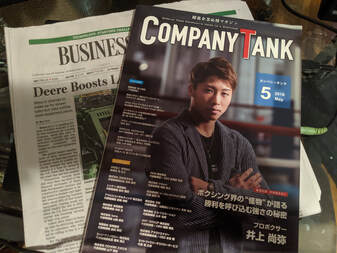 It's odd, uncanny that I'm going back to Japan now. But maybe the timing is also kinda...right? I leave in two weeks. The original plan, which remains in place, so far as this freelancer's Vice editor knows, was to profile Naoya Inoue, the bantamweight sensation with bricks for hands and handsome bangs. And my gosh, I have more material than anyone will ever publish. Lately, I've been reading his views pertaining to business, as you can see from the adjacent photo of May's "CompanyTank" magazine. And there's a lot more where that came from (for all the sarcasm, it's genuinely comforting to see a culture value print publications still). I've been brushing up my rusty, 下手 Japanese. Been watching a soapy workplace comedy crudely called "Pretty Proofreader" on English apps (it's actually about a damn smart copy editor at a publishing house who aspires to be a kind of Anna Wintour, and I love it). Even before this past week, I was unsure I'd follow through and go. The arrangements were made, the tickets bought. But my health dogging me, I've kinda adopted a policy of deciding on absolutely nothing until the final moment. Freelance writing pays shit, I never meant to be pigeonholed as a boxing guy to begin with, and on top of all of that, it sometimes -- nearly always lately -- feels like a dude's drilling into my cranium with a Black and Decker. The only thing "BREAKING" on my Twitter account -- much love, Copp -- is me. And that's why I dislike the idea that in moments of tremendous loss, only boxers can understand what has transpired. The unforgiving gig. Not because my brain might be as fucked. But because these decisions about how to cover a tragedy, how to continue a career, which ramen shops to visit in Tokyo -- they are things we all of us share. There are poorer and richer boxers, dumber and smarter ones. There are New Yorkers I understand and some I never will. And yeah, this industry is filled with incredible evil. Sources of money who don't leave their lodgings for fear of extradition to any one of the several European countries where Europol so badly wants to bag their asses. In light of that, I can see why I might distance myself intellectually from onlookers were positions reversed. So here's the common ground -- and I say this based on personal experience alone. If Boxing Junkie 2.0 or Rafael 1.0 or The Athletic Triumvirate wants to differ, fine: Everyone in this game is 100 percent in and also touch-and-go day-to-day. Boxers are dedicated as fuck -- and then the fight ends and the people disperse and they wonder how they're gonna put themselves through hell the next time. Promoters make deals they feel compromise them -- a bit financially, a bit intellectually, a bit spiritually. Target one at a bar, buy a few and listen. Also, first make sure they're not recording you. And yet, once the paper is signed they will do every damn thing to make the deal work (especially after Canelo announces you're really not working as hard on advancing me as you should be -- especialmente en este caso). I dunno why Errol Spence was in that Ferrari -- but I can tell you his mindset was entirely different in that moment than it was for any of the 48 minutes of the Porter fight. I'm not saying anyone in boxing is tougher or more determined or deserves more than the boxers themselves. I am saying this game is so totally fucked in all its demands, of every person, that if you really look around, you're likely gonna see someone working at life same as you are. With 100 percent commitment one moment and serious questions about whether he or she should continue down a certain path the next. And if that's not true, I'd love to know how my trips to Japan compare to Thurman's during his long, mystical break. Or what Ward and Mikey were up to during their holdouts. And do you think this week is the first time I've heard a grown man cry about the direction of his boxing life? It would be nice or awful to think so, depending on your perspective, I guess. And for those of who have smirked and snickered at Lampley's tears, please keep the snark in abeyance for a moment. The first time I saw a boxing man stand right before me and cry: It was in the back of a Peltz event when I was in college. I was talking to Dick Turner, a '60s welterweight of some repute who seemed alternately present before me and caught up in some troubling memory I couldn't decipher. He mumbled that these girls, they ran over his brother. And he repeated it. Now, his brother was also a fighter once upon a time -- Royal Turner. Won some amateur tournaments, has a 1-0 pro record on Boxrec, but there may be more to it. He and Dick were uncles to well-known '80s TV fighters Frank and Anthony Fletcher. I remember this glossy-eyed man, tearing up some, looking at me, and I didn't know what he was seeing. Keep in mind that we're literally at the fights -- there are two dudes in the ring swinging this entire time. It wasn't until many years later that I finally found the news clipping -- it was 20 years ago exactly this October. A 15-year-old girl, with two friends of a similar age, were joyriding in an old Chrysler LeBaron in Southwest Philly. They struck Royal Turner on the 1400 block of South Hanson Street and then drove off. Turner died at 65 at the Hospital of the University of Pennsylvania -- on the campus where I went to school and at the hospital he himself worked at until retirement. Yeah, his brother recalling that sequence: I think that's the first time I saw a grown man cry in boxing, and to this day my greatest regret, aside from being a small fraction of the writer I should be, is not figuring out some fucking way to bridge these ridiculous world-bubbles separating us, these fucking evil Epcots. Royal Turner worked at the hospital near my classes. He died in the place where he had worked for decades. His brother was known in Philly, his nephews were relatively famous fighters. Why couldn't this somehow all cohere and work? Why did it always have to fall apart? No, I have no fucking clue what to do in the wake of the death of Patrick Day or Maxim Dadashev. I would like to know what Day thought of Japan. And whether he honestly thought what I did two years ago -- Murata needs a left hook. I wanna tell Lou it's okay, and I will and I have. Mostly I just wanna tell the boxing public -- it'd be great if a fighter read this, but anybody -- this sport might not be worth preservation -- not as a business, not as a martial art, not as entertainment. But if we're gonna keep it up and running, if only barely for now, can we please tear down these fucking walls? I understand the business models that enabled and maybe required their creation. But I can't see or hear people through them, and Twitter is no substitute for actual interaction -- for conversation. There's no shame in crying. But it's to our tremendous discredit that we do it alone. I wanna tell off Eddie Hearn for trying to steer a heavyweight title bout to Saudi Arabia for $100 million bucks. Or plead with him to consider the women in his life. Instead, I'll let his actions do the talking -- and plead for the woman in another family's life. _______________ At first, I shrugged and said, Nah. There's dirty money in boxing from all comers -- how objectionable each promoter-network alliance is may merely be a matter of preference -- and I can't condemn them all. Well, I can and have, but it's not productive and might lead to death if I continue. So I won't write an article detailing each unseemly source nor will I make the case one transcends the rest. Do you have issues with drug cartels, Rupert Murdoch hate-fomentation, Russian oligarchs, Middle East journalist-murderers? Which repulses you most and why? Don't forget Manny Pacquiao's senatorial support of Filipino autocrat Rodrigo Duterte (whose favorite pastime is gunning down supposed drug-sellers in the streets). This essay portion of the SAT is 30 minutes. Begin. Not gonna write it. Moreover, boxing -- like the Olympics and World Cup -- is a historically corrupt endeavor. This October will mark 45 years since Ali beat Foreman in the Rumble in the Jungle -- an event funded by Zaire kleptocrat Mobutu Sese Seko -- who also assassinated his own citizens beneath the event's stadium. Take that, megalomaniacal MSG ushers. So this tall and Jewish writer, who values life over death (only in so much as the former provides surer access to kith and kin and sex), wasn't gonna cover Hearn's announced deal to hold the Anthony Joshua-Andy Ruiz heavyweight title rematch in a suburb of the Saudi capital named Diriyah. When this business' endemic mobsterism is obvious to all, when everyone's impure, why risk anything myself -- and how to isolate a single case with any justice? Besides which, there are, sadly, larger questions of realpolitik -- specifically here, the role of Saudi Arabia in checking Iranian power and proxies. But then I read over the last 24 hours about Loujain al-Hathloul -- who has been jailed and tortured along with several women activists for the last year and a half (her stated crimes include agitating against male guardianship of women and trying to talk to foreign journalists). This week the Saudis offered al-Hathloul a deal: She could walk if she signed a statement testifying she'd never been tortured. According to her brother, al-Hathloul would've signed the papers, but she never got the chance -- at the last minute, the Saudis modified their offer, requiring a video-taped pronouncement she'd never been harmed. That was one act of cruel diminishment -- of insult upon injury -- too many (one senses she knows how quickly that video -- pure misinformation and mendacity -- would spread online). She refused and remains unlawfully, mercilessly detained. Loujain al-Hathloul -- look at her laugh, Eddie. And maybe you know well MBS' recruitment of WWE to the Kingdom and its hosting of the inaugural World Boxing Super Series final last year. But consider another whitewashing event -- one held last December 15th -- or a year before Joshua-Ruiz II is scheduled to take place. An exquisitely painful, awfully ironic episode. It was the first race of the season for Formula E -- F1 racing, but with electric cars -- and it was held in Diriyah, the same hood slated to hold the heavyweight rematch. Formula E had earlier made a deal with Saudi Arabia in which the Kingdom paid a tremendous sum to host the season opener for 10 freaking years (the deal also bans races in all other Middle Eastern countries). Kyle Cheromcha of The Drive on that first event: "Loujain al-Hathloul was nowhere in sight. Which might seem odd, considering who she is; the 29-year-old activist and fierce opponent to the kingdom's female driving ban... "She has also been tortured...subjected to floggings, electric shocks, sexual harassment, and long periods of solitary confinement -- as have at least nine other detained women who dared to challenge the status quo in some way. Some bear obvious physical signs of abuse, the sources said, such as uncontrolled shaking and difficulty walking. One has reportedly attempted suicide multiple times." So yeah, after telling the world women could now drive in his sandy fiefdom, MBS has permanently traumatized all the women who'd pushed for such a right. Again, al-Hathloul, in a photo of her driving (the shameless heathen-heretic!) before they took her away: How much of a heartbreaking charade was this race across the "dunes"? The Formula E CEO offered this defense: "If I come [to Berlin] and I [rob] a bank, I have a problem, so that's why I don't do it. As long as you respect the laws and the rules, Saudi Arabia is super-welcoming." The Saudis then agreed on an Orwellian modification to these so-called rules: female racers would lap the track prior to the real event (not Saudi commoners -- actual race car drivers) and women would be granted a special dispensation to report on it. Let us pause briefly to laugh, amidst the horror, at the popular success of this venture, Trump inauguration-style: Back to business: I'm not counting on this appeal to common decency to work -- and maybe Ruiz rep Al Haymon brings the heavyweight rematch to the States ultimately anyway. But what if Hearn or Haymon made a simple demand of their would-be hosts: We'll give you this major bout, and a host of others. We'll even take a lower site-fee. But let them go. Let Loujain al-Hathloul and her battered compatriots go. The women who agitated for rights supposedly now granted. If the Saudis blink, Madison Square Garden remains available -- and last I checked, the only crime committed beneath it is Amtrak's customer service. ___________ On a less joking note, and without personally knowing him, I want to believe Al Haymon remains the giving -- if vexed -- loner soul he was 20 years ago. Specifically, the Haymon who donated hundreds (maybe thousands?) of concert tickets to AIDS counselors in south LA, because the rates of infection for Black and Hispanic people were disproportionately high. And the gay taboo in the black community meant some women were unknowingly sleeping with men who also had male partners. Haymon's program was simple: Come to a clinic for an HIV test, get a free ticket to a major concert (Luther Vandross, Destiny's Child were just two of the acts featured). I think also of a rare quote Haymon gave the press. Haymon told the Boston Herald in August 1991: "There's only going to be a few hundred professional athletes at any one time and only a handful of renowned entertainers. Maybe I can provide an example to black youngsters that there are other ways to be successful in entertainment besides singing, rapping or dancing." You've been involved mostly in music and sports, Al -- your life feels like a mixed message to this point -- but this move would certainly be so generally humanistic and well-known it'd serve as tremendous example for youth of all colors and propensities. This wouldn't be one of those faux-philanthropy days athletes spend at their former schools -- those mini-camps that implicitly pass on a wrongheaded notion: Only sports save. Nor would your messenger be the morally-compromised figures you've let upstage you: Floyd, Broner, Gervonta. Hell, if you're so much like Howard Hughes, just reach out from your bunker, extract Saudi concessions and never tell the media. We both know Eddie would be all too glad to take the credit anyway. Canelo Alvarez is unhappy with his promotional outfit and its semi-leader/figurehead, Oscar De La Hoya. That much you can read anywhere. But here are some reasons -- all of which I shared with Golden Boy (seeking its version of events) and none of which was rebutted: Canelo told Oscar during negotiations last year not to promise DAZN a third fight with Golovkin -- not because Canelo feared the fight but because he felt he won the second in straightforward fashion and he sincerely disliked the idea of helping out Golovkin financially (that antipathy is real). Yet Oscar promised DAZN a third Canelo-GGG go-round anyway -- which has hurt a bunch of people: It led to DAZN signing GGG by guaranteeing him a shot at Canelo they cannot deliver presently. DAZN is in breach of the GGG contract as as result. And GGG's lawyers have now sent DAZN a letter about the violation, demanding a title fight, so their guy has a belt to dangle before Canelo in 2020. The DAZN c-suite desperately wants for the boxing lifer Len Blavatnik never deigned to hire. Now, DAZN's North American survival "depends on how rugged a stomach that Len Blavatnik guy has," according to one boxing exec. Although it should be said in defense of the aforementioned, that everyone who works in boxing is compromised one way or another. That's the nature of the game. And the consensus view on Canelo is that he's become more and more peevish -- and acerbic -- with each earned dollar. So maybe the names here of persons and corporations alike are interchangeable. Boxing was dead on arrival. The Marquess of Queensberry was a zombie. Canelo is also upset Oscar receives his own perks as part of Canelo's $350 million DAZN contract -- part of the paycheck Canelo generates is used to compensate other fighters on Golden Boy cards. Canelo can't see why that money shouldn't go to the development of his own business (like a subsidiary promotional outfit in his name). After all, nobody has made money for Golden Boy -- been a boxer in the black instead of red -- besides Canelo for years. Canelo has secured the services of an independent lawyer -- either to re-negotiate his Golden Boy deal or to ensure it's properly enforced or to cut a deal in which Canelo buys out the remainder of the contract. The lawyer might wind up doing all three and in that order. Someone ball-parked a buyout figure to me of $20-30 million -- but only if Canelo's lawyer can show Golden Boy has been acting in bad faith or not living up to its side of the deal. And the figures obviously could vary greatly based on fight outcomes (or, heaven forfend, injury). Sadly, this is where Oscar's history of substance abuse has legal implication. I really respect the way Oscar has treated me personally. And addiction is a disease. But Canelo was reportedly embarrassed by a few instances in which Oscar was a no show at his pressers, ostensibly because Oscar was impaired or hung-over. If it can be proven he was indeed absent for that reason, Canelo will get to pay far less to buy out his deal -- because it portends greater difficulty for Oscar should the case be litigated. Canelo has made overtures, through intermediaries, to two well-known promoters -- which efforts were likely designed and executed with sufficient subtlety so as to skirt tortious interference. An executive with one promoter, after I texted him about the outreach, replied, "No idea about that." Maybe the outreach was so subtle those on the other end didn't even know they were being -- quietly but desperately -- sought (#InsidetheRopesInception). Meanwhile, how genuine was Canelo in recent days in accusing Golden Boy matchmaker Robert Diaz of leaving him in the dark about negotiations involving IBF mandatory challenger Sergiy Derevyanchenko? The jury is out -- but the last couple months in Robert Diaz's life have been odd: The Golden Boy matchmaker has had to take on more executive tasks, including the act of shooing Sergiy with step-aside money so Canelo could face a brand-name opponent (DAZN didn't want Sergiy either -- they preferred light-heavyweight Sergey Kovalev, who didn't receive a satisfactory offer from Golden Boy until a day after the deadline for him to withdraw from his upcoming Aug. 24 bout in Russia -- in the wonderfully-named "Traktor Sport Palace"). A pattern emerges: According to one source, Golden Boy ignored all calls and emails from the IBF and from Sergiy's representatives for two whole months and only got back in touch just before an IBF-mandated deadline, in order to ask for the deadline to be pushed off (which it was). Had Diaz picked up the phone, perhaps the step-aside fees would've been accepted and the IBF belt retained. But the thing that may have pissed off Canelo the most here: Robert Diaz, in written correspondence, allegedly said Canelo would give up his IBF belt if a deal weren't made by a certain time. Even before the IBF stripped Canelo, his own representative volunteered the belt's return. Why? And with Canelo's permission? And why was this being handled by the matchmaker -- why wasn't Canelo working through either CEO Eric Gomez or founding Golden Boy Oscar De La Hoya? Was there a previous rift about which we don't know? And back to the months of radio silence: I've ghosted some people I met on OkCupid but only permanently -- never for a full month only to return meekly and with minor money -- Diaz offered Sergiy less than 14 percent of the pot -- like I was some John dismissive of Elizabeth Taylor and then in need of her, "Butterfield 8"-style. There's also Canelo's distaste for the way Oscar, Eric and Robert are now making millions on his bouts regardless of their efforts. The huge, already-locked-in Blavatnik dough has left an Odebrecht aftertaste on Canelo's tongue. Like, wait -- what are they presently doing to justify all that income?
DAZN comes back into play here: By giving Daniel Jacobs $14 million to fight Canelo in May, John Skipper invited all the top middleweights under his banner (Demetrius Andrade, GGG, Sergiy Derevyanchenko, and, soon, Billy Joe Saunders) to demand impossible fees. Blavatnik ain't gonna offer bread to 'em all (question, sincerely: What kinda pan do you think oligarchs prefer? All breads seem so plebeian in our post-Earl of Sandwich world. Do they just eschew sandwich-consumption altogether?). Anyway: How is the Canelo-Oscar story resolved? "Nothing is fucking irreparable," a promoter told me. "I don't think the relationship will ever be the same, but it doesn't mean it will end." ____________ Peter Nelson, before he presided over the death of HBO Boxing, when he seemed to represent to me all that was good about the fight world, having transitioned from scribe to macho multiverse major domo, who seemed to emerge from muddy "Stripes"-style basement rumbles immaculate if enervated, told me what Cedric Kushner had once told him -- about boxing being the preserve of the very worst people but also the very best. I've been thinking on this frequently of late. First, because I've had the distinct privilege to talk online to good-hearted people whose mutual appreciation of -- and repulsion by -- boxing has engendered tremendous intimacy between us -- a kinship and an empathy others never find in any corner of the world, cyber or real. Secondly, I've made minor entry recently into the frag-head world -- that slice of society globally that loves discussing niche fragrances with others, borders be damned. In some ways, their wrist inhalations and evaluations shares nothing with our appreciation of the catch-and-shoot and check-hook. But in other ways -- in verbiage, sincerity, the necessity of heightened sensation -- the cologne connoisseurs ain't dissimilar at all. So as I might thank Amanda, Shaun or Glen -- or countless others -- for encouraging my copy efforts so kindly, I just wanna shout out Joy Amin of Dhaka, Bangladesh, and Ionut Filipeanu of Romania for their EDP appraisals on video. Their evident joy in taking in specific notes -- of incense, oud and patchouli, to name a random trio -- is infectious. Scent stories coming. You know Top Rank, Golden Boy and Haymon Boxing? Wait till you meet the firms of Fermenich, Givaudan and Coty. Fragrance is war. Yes, you picked the wrong week to stop sniffing MFK BR 540. 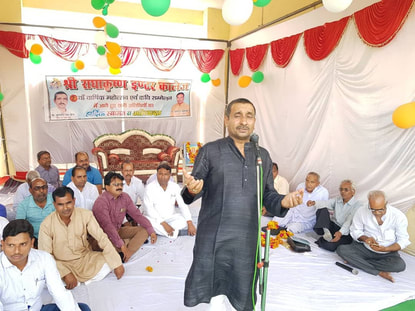 Hypocritical Villain Kuldeep Sengar Hypocritical Villain Kuldeep Sengar To my admittedly addled mind, the following story -- combining the worst elements of contemporary female repression with old-school Bible-outlawed homicide, in a conspiracy that would seem absurd on a soap opera, and yet has been unfolding in real time on Indian TV stations for the last two year but especially in the last week -- exerts a singularly perverse, post-Modern pull. Welcome to Uttar Pradesh, India's most populous state, and home to a low-level politician whose party won't disavow him despite a string of crimes and his utter unimportance in national affairs. This surreal, sordid drama began in Unnao, UP, in June of 2017, when a woman who was just herself 17 traveled to the house of a state legislator -- Kuldeep Singh Sengar -- to discuss a possible job. Instead, the politician raped her, according to her account and a corroborating investigation. In 2018, the victim lit herself on fire in front of a chief minister because of his inaction in her case -- because her attacker, still in office, had gone unpunished. Because the chief minister was buddy-buddy with her assailant. The next day her father was beaten to death by a group of thugs, including the rapist's brother, according to some detailed accounts. On Sunday -- three days ago -- the episode became more gruesome, vile, incomprehensible. The rain was falling hard on Raebareli, a small city on the banks of the Sai River, where an average hotel room costs $17/night. The victim was traveling with two aunts (one a witness in her legal case) and her lawyer -- when a speeding truck with blacked-out license plates rammed their car head-on. The two aunts died, and the victim and the lawyer were rushed to a hospital, where they remain in critical condition. This isn't a movie. A politician charged with raping a girl is seemingly trying to have her and her family offed. If you saw this on-screen, you'd consider the evilness unsubtle, the narrative without nuance. On Monday, at the urging of the victim's uncle, local police charged 10 men, including Kuldeep Sengar, of murder and criminal conspiracy. The report also alleged that local cops had tipped off Sengar about the victim's movements (which would explain why the truck was able to locate her car). On Tuesday, these local cops were compelled to hand over the inspection to the CBI -- India's equivalent of the FBI. Later, the political party to which Sengar belongs -- which has faced criticism for not booting out the thuggish predator -- claimed it had secretly suspended him in 2018. The Times of India asked for proof and received none. Right now, as I type this on Wednesday morning in the US, the CBI is inspecting the site of the truck-auto crash. And a national congressional committee is fasting -- basically on a mini-hunger strike until Sengar's ruling BJP party actually expels him. Of course, there are opportunists. Members of an opposing party protesting in front of a Gandhi statue cackled like little kindergarten snitches who now have the plastic Flintstones phone all to themselves. Sengar is in Sitapur jail, after having been moved already from another facility (for his own safety or more nefarious purposes I couldn't ascertain). Sengar's own family, including his two daughters, has gone into hiding, as have political aides. Sengar's history is being reexamined. To reach his current seat of power, the former jeweler recruited voters from a particular caste (don't get me started on that system) and from the Muslim community and sealed their affection for him with 10,000-rupee gifts to certain brides in his electorate. This planning was always cynical but never hinted at what has transpired in the last week. Which leaves the victim, whose name Indian media have omitted. While someone abused as a minor deserves every bit of protection, this anonymity has also rendered the woman a non-entity. She can't be described physically and so can't be conjured with words. What we can attach to her are only the hardships she has endured and her bravery in facing them (although I find self-immolation to be something other than "bravery," but that's really not for me to say; I have considered the subject, though -- in 1349, the Jews of Oppenheim, Germany, a small town on the Rhine, were either killed or forced to convert to Christianity -- ostensibly because they had helped bring about the Plague; some of them, abhorring the idea of conversion, decided the rightful thing to do was indeed to commit suicide by self-immolation, and so they did). No doubt she deserves the right to be defined on her own terms and not by the way her society has stripped her of dignity first, personhood second and actual family third. So I will go with the detail we do have: She is being treated post-crash in King George's Medical University in the state's capital -- whose alumni magazine, Georgians, printed a poem about language a decade ago, before this ordeal ever began. An excerpt: We take English for granted, but if we explore its paradoxes, we find that quicksand can work slowly, boxing rings are square... English should be committed to an asylum for the verbally insane _____________
My brain feels like a blown fuse box, a sun-melted circuit board. So I have opinions -- about why Andre Berto's musculature was never right for boxing, for instance (that Haitian wrestler body he inherited from his pops, replete with popping pecs and bulging biceps, was always too densely knotted for this sport; of course, I wish him well in his recovery from a torn biceps anyway). But I can't tease out my own thoughts. Not with precision or grace. I do recommend "Contratiempo" on Netflix -- a good Spanish film about an affair, a murder and a car accident, even if you'll anticipate the twists and take issue with certain easy contrivances. Also, looking for a 2-hour-and-50-minute Hindi MMA film? "Sultan" from 2016 checks that box (also, I'm down for the men's fragrance Sultan from perfumer Al-Rehab -- it's a nice, simple cedar, although the company's home base in Saudi Arabia gives me pause). No boxing tragedy will ever suffice to shut the sport down -- and if it should, won't another combat sport, in taking its place, keep it essentially alive?
Not just because it presents the poor and unlettered a possible career (if not exceptional wealth and fame) and because that connection can be programmed for the gain of common tricksters. Not just because globalized culture means another country will take up the sport as soon as a first-world one dismisses it. Not just because simple writers find easy material in underclass striving (it's tired stuff, but so are many efforts to transcend it). Boxing isn't the domain purely of punchers, pimps and bad poets. The game has technical wizards whose apprenticeships have left them with mesmeric skill. It has good-hearted people who want to serve this elite and writers who come in praise of them. Men and women who can show angles. It has promoters and executives whose hearts and head weigh all these factors and feel always unbalanced. Who privately discuss leaving the sport in hoarse voices on late-night phone calls and can next be seen on the weekend championing their stables in between rich meals. I know them -- perhaps you do, too. The utterly unrepentant ones aren't worth saving. That's obvious to us. It won't be to those tragedy invited. In mourning the death of Maxim Dadashev, I know distinctions will be missed. Understandably. Someone is gone, short of 29, for no larger purpose, due to injuries sustained (and replayed) on live television. Newspapers and magazines of a certain type (not to mention the great glib masses) are moths to these fluorescent words -- boxing, death, Disney. This piece isn't meant to head off their criticisms. Or curtail the period of Dadashev grief. In fact, I hope both Showtime and DAZN, with live cards this weekend, take time to mourn the Top Rank-ESPN fighter, despite the disparate corporate affiliations. Dadashev could have been a contestant on their broadcasts. Any boxing death is just that -- a wider communal loss, a sadness surpassing abstruse (ever-changing) backroom-affiliations. Nor do I wanna embrace the utilitarian idea -- that boxing does more for the disenfranchised than it demands of them. Or that its lucre and ennoblement mean it has social merit. That the worst case scenario, no matter how common or rare, is the unfortunate cost of doing business. The result would be an apology for the "The Hunger Games." I just wanna say I thought I'd be done dealing with boxing a long time ago. It was never my plan to keep writing about these soap operas without end (in part because some participants are impenitent women-beaters and some chroniclers are high-functioning illiterates; also, the drug-gang affiliations are a lot to swallow). But having done so, I've come across a band of decency perhaps native to the game (if this exists in other realms, feel free to let me know). There are rebels of common decency here -- people who are manic, sick, sad, desperate (sometimes all at at once) and somehow evince more good will than my closest friends engaged in a political debate. They will enrage me sometimes by ignoring what I write or misconstruing it or insulting it during a compliment: "I thought you were crap, but you're not, so what the hell are you doing in this cesspool?" Light the back and side of your neural matter with a Zippo, feel that fire, go days without sleep and tell me how comfortable you'd be working your way up the non-remunerative journalistic ladder. Cure my brain inflammation and I'll pwn Pynchon, I promise. I write for the rebels -- those pinned into this corner of the world by circumstance whose mourning of Dadashev will feel insufficient; whose posture means they'll be poked by non-native trollers of tragedy; whose sadness will render them momentarily unprotected. If this entire venture is wrong, we've no simple manner to extricate ourselves. I've tried and for multiple reasons (some involving me, some involving the game), I've always returned, no matter how long the absence. We are here and we are gutted. We're not pretenders of naivete like Bob Dylan in the early '60s -- we know calling for the erasure of fighting is ineffectual. We are not lovers of snuff who want bodies on our record (I still don't think Deontay does when he follows the thought to its conclusion -- he's just not in the habit of going that far). We are really sad, and knowing sadness well enough, we know it never completely leaves. That the thought of that night and this passing will recur to us -- and small depression alongside it. I see the ashen face of Egis Klimas. Neurologists don't really understand memory yet (the promise of Wired articles on fMRI studies notwithstanding). Is this passing a primal warning to the system -- Don't fall into that circumstance again -- heed how it ended last time? Whether that's the case or not, I want to consider the question -- because I honestly don't know who else will. We can't expect that of those closest to Dadashev nor the interlopers who'll find fault with our brutal entirety. I will only say so much -- the death shouldn't be made easier to deal with; and my own brain, battling uncommon affliction for 15 years, means I've no patience to call up 100 neurologists or 10 for consultation on ring trauma. What I know are two essential cases that coalesce into a single argument. First, Pedro Alcazar, who lost his title in a sixth-round TKO in Vegas in July 2002 but hung about the Strip the next day without incident -- whose sudden and fatal brain-swelling did not seem to commence until a full day after his fight had even ended. Whose post-bout checkup revealed no neurological precursor of bleeding or resultant ischemia. The second is the earthquake that could be felt in Vegas almost 20 days ago -- the Ridgecrest activity -- magnitude 7.1 -- that sent scoreboards swaying in the Thomas and Mack Center, curtailing an NBA Summer League game and scaring the bejesus out of announcer Doris Burke and fans alike. In this second case, I have been struck by the similarity of geological reports to the science behind subdural hematomas -- the acute brain bleeds boxers suffer whose swelling releases pro-inflammatory factors and can deny the brain oxygen and necessitate the surgical removal of parts of the skull and the inducement of medical coma. The July 5 earthquake took place in the Eastern California Shear Zone, whose rent land moved northwest and southeast along opposite sides of a fault. The rupture is made visually apparent in a series of GIFs created via Google Earth by a Greek geologist. The visual and its name are windows into the embattled boxer's brain bleed: "the Shear Zone" sounds awfully like the consensus scientific description of an acute subdural hematoma, which results from "shearing injuries" to veins or arteries. Now that boxers present far less dehydrated on fight night than they used to (thanks to the day-early weigh-in), and we've trimmed the number of rounds in a title match and even added a rope to prevent boxers falling through, the greatest medical question legalized fighting faces is: why do some veins shear when others retain their integrity? It's no easy question to answer -- to whit, we know about fault lines across the world but remain unable to predict the occurrence of quakes with precision. And yet, we have clues -- a direction for future engagement. Consider again case one, Pedro Alcazar, whose rupture occurred so long after he faced any punches. Consider, too, the discussion I had with eminent fight doctor and PED-tester Margaret Goodman after Dadashev was hospitalized. Her informed belief based on observation and study is that brain injuries begin in training. Which is another way of saying the integrity of veins may already be compromised in the training process -- rendering shearing more likely, if I understand her correctly. Either way -- whether it's Alcazar being stricken a day after his fight ended or a boxer's brain being first insulted in sparring -- the picture is like that of a tectonic fault -- two surfaces slipping against east each other a little bit at a time until suddenly they're free of each other enough to split, fall away, come undone. Of course, continental plates wind up catching on each other again, while the split vein has no similar means of natural re-connection (there is coagulation, though). But it's a helpful metaphor until that point. And the science past the split isn't utterly unknown -- it's probed and augmented everyday. This study from last October, to which I referred earlier this grim week, says patient blood type makes a big difference in outcomes following acute subdural hematoma. All of which means we need a new model of fighting that doesn't separate training (or respite) from fight night and doesn't depend on spot-neuro exams, either before or after bouts, as the sole measure of cerebral safety. Instead trainers and commissions need to assess fighters for predispositions to venous tearing constantly -- with communication now and technology once we have it. For now: if you train a guy, and he's involved in brutal sparring, that should be a matter of doctoral record and not hee-hee rumor spread by giddy cognoscenti. Boxing will never be free of risk. Science won't cleanse our cockfighting souls. An outsider with good intentions will pillory us, and we'll have to take it, no matter how little nuance we find in his or her words. Some of us may just shut off fights for a long time, myself perhaps included. For the moment, however, we are in this corner of the world -- a place to which we've felt called (or have been marooned). And for that reason may, post-tragedy, undoubtedly return. There are the attachments of routine, memory and ironclad contract. This is for us. Rest in peace, Maxim Dadashev. Your family matters more than any of us now. Maybe they'll see donations from the dark-money elements in the game. That would hardly balance the moral ledger, but what should they care of redemption in the purchase of bread? I hope they find tremendous comfort in what you did or may yet inspire or in some element of life I'm overlooking. I think of tearing and hope somehow you are caught. |
|
